Happy 76th Independence Day o Pakistan
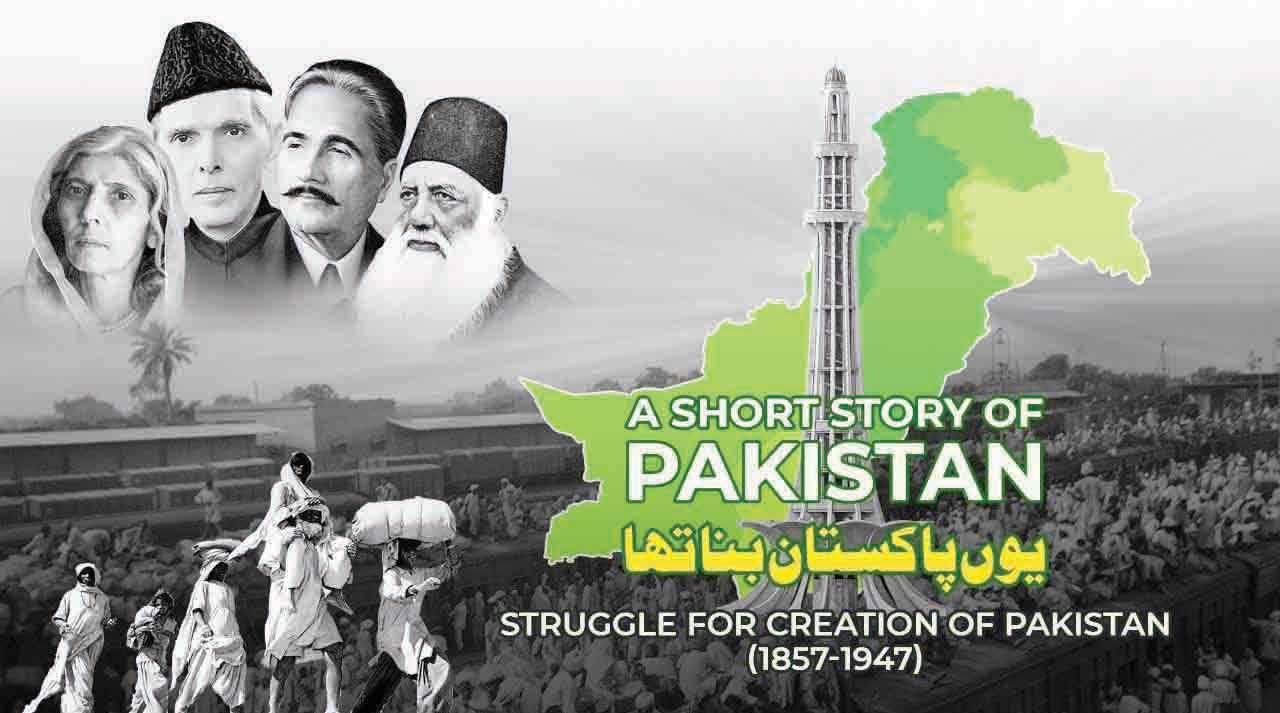
Azadi’s Edition
From the entire Miracle Team, Writers and Advertisers!

Imran Khan’s ‘life under threat’ in jail, says Pakistan ex-PM’s party
Khan was arrested and sent to jail for three years following his conviction in a corruption case by a court in Islamabad.
Islamabad, Pakistan – Jailed former Pakistani Prime Minister Imran Khan’s party says it is concerned about his safety and security in pris-
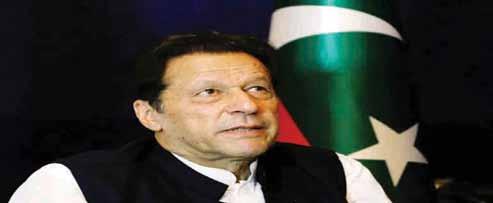

See details on Page # 3,7,12,13,16-21












Here’s a look at what’s happened in Canada’s record-breaking wildfire season so far
on, where “his life is under threat”. Khan, 70, was arrested and sent to jail for three years following his conviction in a corruption case by a court in capital Islamabad on Saturday.Shah Mehmood Qureshi, vice chairman of Khan’s Pakistan Tehreek-e-Insaf (PTI) party, told Al
Canada is now halfway through its record-breaking wildfire season, which has seen more land than ever burned, the highest number of evacuations in a given year and several casualties. Almost every province and territory in Canada has dealt with the forest fires that have displaced communities and touched Canadians from coast to coast with smoke and


ash. Climate Barometer newsletter: Sign up to keep your finger on the climate pulse This year’s wildfire season is the worst Canada has ever seen and there are still months of blazes expected ahead — the season typically lasts from May through to the end of September.
Here’s a look at what this year’s wildfire season has been like so far.

www.miraclenews.com Volume 23- Issue 603- August 11, 2023- Muharrum 24 , 1445 H, $1 THE Police using social media accounts as In farewell address at NA, PM Shehbaz terms Two dead after Lebanon’s Hezbollah fight Prophet Muhammad’s (S) Gift of Universal How extreme heat impacts the human body Independence Day of Pakistan Time line B.C.’s largest wildfire downgraded following Pakistani Community protesting for Canadian Muslim Media Club (CMMC) 10 06 16 08 05 06 11 18 18 BC, CANADA First Muslim Biweekly & Bilingual
Cont. @ page 5 Cont. @ page 5





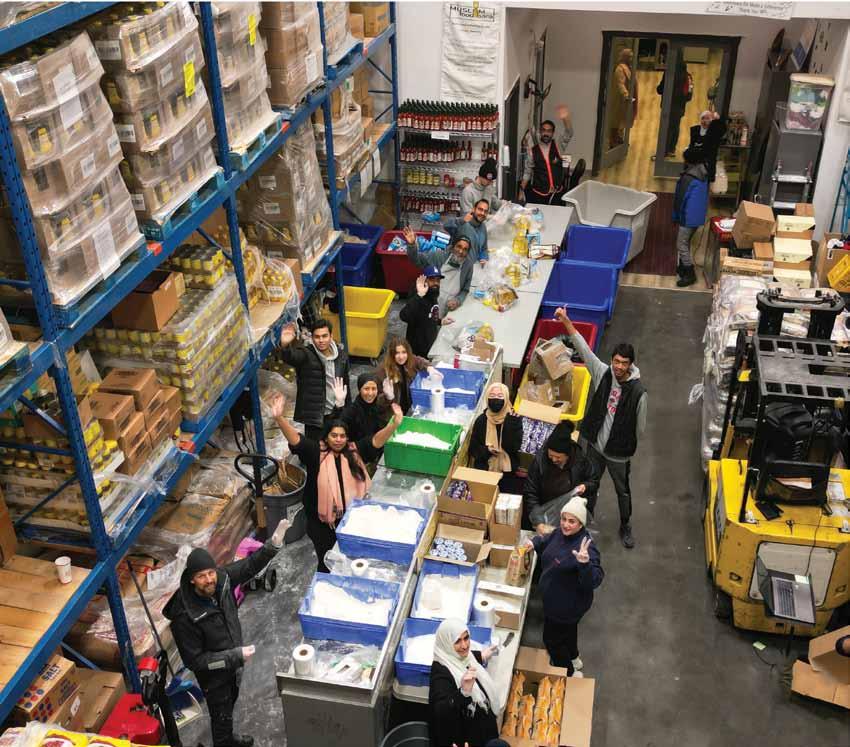
2 Muharrum 24,1445 August 11, 2023 #205- 8035 120th Street, Delta, BC Support your Local Muslim Food Bank Vancouver, Surrey, Toronto, Calgary, Regina, Winnipeg, Halifax @muslimfoodbank www.muslimfoodbank.com FOR DONATIONS OR TO VOLUNTEER 1-866-248-3868 muslimfoodbank.com COMMUNITY SERVICES
Pakistan: Facts & Stats Creation of Pakistan
Also Known AsIslamic Republic of Pakistan
• Islām-ī Jamhūrīya-e Pākistān
Head Of Government

Prime Minister: Care Taker*

Capital: Islamabad
Population
(2023 est.) 232,690,000
Currency Exchange Rate

1 USD equals 287.055 Pak rupee

Head Of State
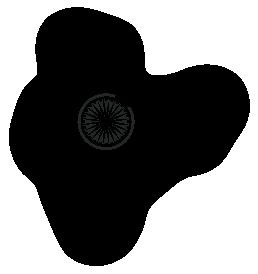
President: Arif Alvi




Form Of Government federal republic with two legislative houses (Senate; National Assembly

Official Languages:
English; Urdu
Official Religion: Islam
Official Name
Islamic Republic of Pakistan
Total Area (Sq Km) 796,096
Total Area (Sq Mi)

Monetary Unit
Pakistani rupee (PKR)
307,374
Population Rank (2023) 5
Population Projection 2030
242,564,000
Density: Persons Per Sq Mi
(2023) 757
Density: Persons Per Sq Km
(2023) 292.3
Urban-Rural Population Urban:
(2017) 36.4% • Rural: (2017) 63.6%
Life Expectancy At Birth
Male: (2020) 64.5 years •















Female: (2020) 65.5 years
Literacy: Percentage Of Population Age 15 And Over Literate
Male: (2019) 69% •
Female: (2019) 46%
Gni (U.S.$ ’000,000) (2020)

282,910
Gni Per Capita (U.S.$) (2020)
1,280
14 August 1947 Pakistan Independence Day History

On 14 August 1947 (27th of Ramadan in 1366 of the Islamic Calendar) Pakistan gained independence. India gained independence the following day. Two of the provinces of British India, Punjab and Bengal, were divided along religious lines by the Radcliffe Commission. Lord Mountbatten is alleged to have influenced the Radcliffe Commission to draw the lines in India’s favour.[40][41][42] Punjab’s mostly Muslim western part went to Pakistan and its mostly Hindu and Sikh eastern part went to India, but there were significant Muslim minorities in Punjab’s eastern section and light Hindus and Sikhs minorities living in Punjab’s western areas.
There was no conception that population transfers would be necessary because of the partitioning. Religious minorities were expected to stay put in the states they found themselves residing in. However, an exception was made for Punjab which did not apply to other provinces. Intense communal rioting in the Punjab forced the governments of India and Pakistan to agree to a forced population exchange of Muslim and Hindu/ Sikh minorities living in Punjab. After this population exchange only a few thousand low-caste Hindus remained in Pakistani Punjab and only a tiny Muslim population remained in the town of Malerkotla in India’s part of Punjab.Political scientist Ishtiaq Ahmed says that although Muslims started the violence in Punjab, by the end of 1947 more Muslims had been killed by Hindus and Sikhs in East Punjab than the number


14August 1947 Pakistan Independence Day History Now Independence Day is coming closer and all Muslims celebrate it with great enthusiasm ad pleasure on 14th August every year. But Pakistan’s Independence was formally announced on Thursday, August 15, 1947, at 12:00 a.m. and the ceremony was held half an hour the actual day. This day is celebrated 1 day earlier in association with India even though the independence from the British Raj to both countries at midnight on 15 August 1947.
14 August as our Independence Day is the Birthday of Pakistan. Before August 14, 1947, Pakistan was not an independent country and it is ruled by the British or any other foreign power. It was created as an independent and free country on 14th August 1947 and right 24 hours after there was Indians’ Independence from British rule. As Pakistan was born free we should celebrate its Birth Day and not its Independence Day with great pleasure and enthusiasm.
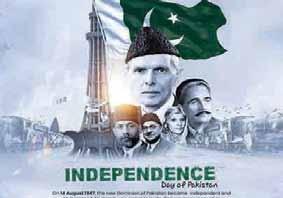
Celebrations of 14th August
of Hindus and Sikhs who had been killed by Muslims in West Punjab.Nehru wrote to Gandhi on 22 August that up to then, twice as many Muslims had been killed in East Punjab than Hindus and Sikhs in West Punjab. More than ten million people migrated across the new borders and between 200,000 and 2,000,000 people died in the spate of communal violence in the Punjab in what some scholars have described as a ‘retributive genocide’ between the religions. The Pakistani government claimed that 50,000 Muslim women were abducted and raped by Hindu and Sikh men and similarly the Indian government claimed that Muslims abducted and raped 33,000 Hindu and Sikh women. The two governments agreed to repatriate abducted women and thousands of Hindu, Sikh and Muslim women were repatriated to their families in the 1950s. The dispute over Kashmir escalated into the first war between India and Pakistan. With the assistance of the United Nations (UN) the war was ended but it became the Kashmir dispute, unresolved as of 2023. Source: en.wikipedia.org/
On 14th August there is great hustle and bustle everywhere in Pakistan; the Minar-e-Pakistan is fully lit to memorialize the independence of Pakistan from the British Empire. The 14th August ceremony is celebrated at various monuments throughout the country. The Pakistani cadets including the Navy, Military, and Air Force salute the tomb of the father of the nation, Muhammad Ali Jinnah, Students illuminate candles at midnight to bring luck and hope for the future. On 14 August there is a National holiday in the country. In the capital Islamabad and in all major cities of Pakistan the Government Offices are lit up as well as all the larger skyscrapers. The flag is hoisted on all the important buildings and it is considered the major part of the 14th August ceremonies other than this cultural programs take place in the entire province… Happy Birthday of Pakistan to the entire Nation! This is complete details about 14 August 1947 Pakistan Independence Day History.
A Happy Independence Day!
Muharrum 24,1445 August 11, 2023 3
Andrew Mercier, MLA Langley
BCGEU Local 701
Lana Popham, MLA Saanich South
Harry Bains, MLA Surrey-Newton
George Chow, MLA Vancouver-Fraserview
Ravi Kahlon, MLA Delta North
Adrian Dix, MLA Vancouver-Kingsway
Bruce Ralston, MLA Surrey-Whalley
Mike Farnworth, MLA Port Coquitlam
Rachna Singh, MLA Surrey-Green Timbers
Surrey-Fleetwood
Jagrup Brar, MLA Surrey-Guildford
Garry Begg, MLA Katrina Chen, MLA Burnaby-Lougheed Esquimalt-Metchosin
Mitzi Dean, MLA
Bob D’Eith, MLA Maple Ridge-Mission
George Heyman, MLA Vancouver-Fairview
Coquitlam-Maillardville
Selina Robinson, MLA Aman Singh, MLA Richmond-Queensborough
Mike Starchuk, MLA Surrey-Cloverdale
Murray Rankin, MLA Oak Bay-Gordon Head
Jennifer Whiteside, MLA New Westminster
Henry Yao, MLA Richmond South Centre
Premier David Eby Vancouver-Point Grey
Premier DAVID EBY and your BC NDP MLAs wish you
Burnaby-Edmonds
Raj Chouhan, MLA
Rob Fleming, MLA Victoria-Swan Lake
Jinny Sims, MLA Surrey-Panorama
Journey to P AK
Happy 76th Independence Day of Pakistan and India


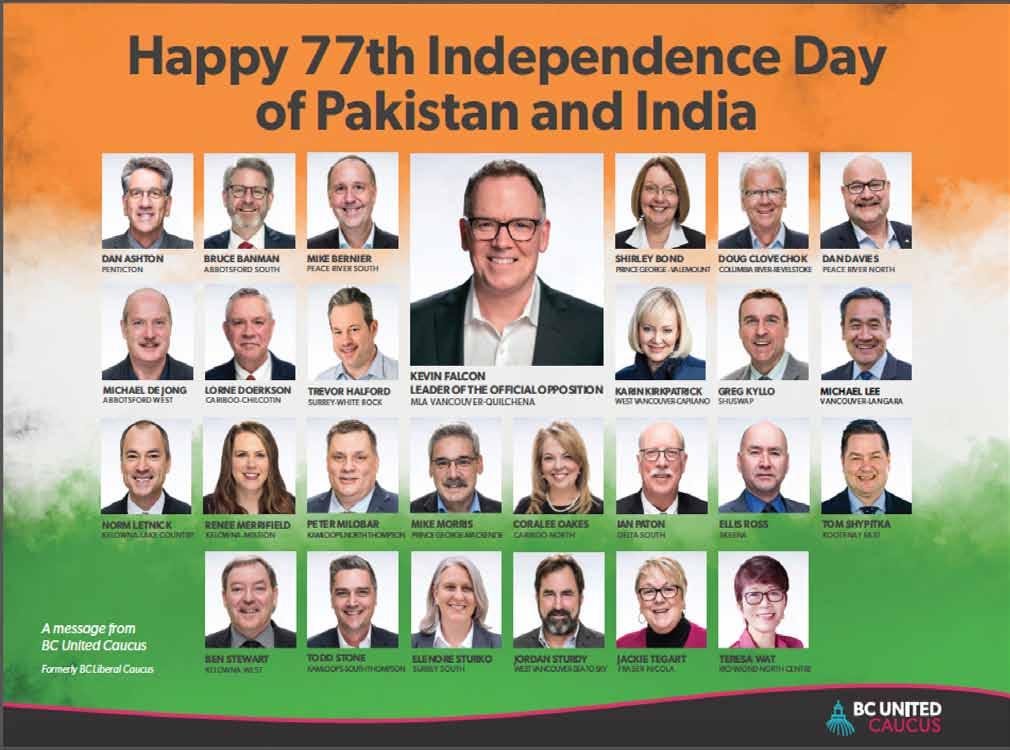

Muharrum 24,1445 August 11, 2023 4
Journey to P AK
Source: islam.ru/en/content
Prophet Muhammad’s (S) Gift of universal Freedom to Humanity
 BY: MANSOOR ALAM
BY: MANSOOR ALAM
At the time of our Prophet (S), human beings were living under all kinds of oppressive systems. J.H. Denison aptly sums up the miserable human condition prevailing at that time: “It seemed then the great civilization that it had taken four thousand years to construct was on the verge of disintegration, and that mankind was likely to return to that condition of barbarism where every tribe and sect was against the next, and law and order were unknown…. Civilization… rotted to the core, riven by the storms of war, and held together only by cords of ancient customs and laws, that might snap at any moment. Was there any emotional culture that could be brought in, to gather mankind once more into unity and to save civilization? ... That such a culture should have arisen from Arabia just at the time when it was most needed.”
[J. H. Denison, Emotion as the Basis of Civilization, pp. 267-268]
The Prophet (S) liberated human beings from these oppressions and opened the door of true freedom for humanity. The Prophet’s mission (and therefore his Sunnah) was to establish the unity of humankind (2:213). This was a necessary consequence of the belief in the unity of God (112:1). The Prophet (S) did not achieve this high goal by rituals and dogmas alone. Nor did he accomplish it by supernatural means. He (S) and his companions (R) persevered and struggled to create social and political change through Quranic education and training. They challenged the secular, tribal, and temporal forces of exploitation and corruption. They torched the path to freedom by removing the chains placed on human beings by these forces: “… lift[ed] from them their burdens and the shackles that were upon them...” (7:157). This struggle of our Prophet (S) and Sahaba (R) gave unimagined freedom to oppressed human beings. Thus the darkest period in human history (quotation from Denison) was turned into a most enlightened one.
Under our Prophet’s leadership and his Sunnah, the world was transformed briefly, as people were given freedom to develop their human potential. Even today, historians and philosophers marvel at how the most backward and barbarous people became the most advanced, most civilized in such a short time. Yet, sadly enough, today, instead of being astonished, we are perplexed at how the succeeding Muslim generations came to lose that glory. Muslims are oppressed in their own homelands. Why? Could it be that we have extinguished the light of freedom borne by our Prophet (S) and his companions (R), the light that liberated common people from exploitation and subjugation? If so, how can we bring back that luster? How can we enlighten the present consciousness of Muslims, as well as non-Muslims?
The only way to do that is for us to re-turn to the pristine message of the Quran. We must remove the non-Quranic dust that has settled over Islam through centuries of dictatorship and priesthood, resulting in the suffocation of that very freedom of thought, which our Prophet (S) gave to humanity.
Allama Iqbal emphasizes the importance of independent thought. He says:
“The only course open to us is to approach modern knowledge with a respectful but independent attitude and to appreciate the teachings of Islam in the light of that knowledge, even though we may be led to differ from those who have gone before us (page 78). …The teaching of the Quran that life is a process of progressive creation necessitates that each generation, guided but unhampered by the work of its predecessors, should be permitted to solve its own problems (Page 134). …False reverence to past history and its artificial resurrection constitute no remedies for a people’s decay. ‘The verdict of history’, as a modern writer has happily put it, ‘is that worn-out ideas have never risen to power among a people who have worn them out.’
The only effective power, therefore, that counteracts the forces of decay in a people is the rearing of self-concentrated individual (Page 120).” [The Reconstruction of Religious Thought in Islam]
It is important to note that the ability to think differentiates human beings from animals. If this freedom is taken away, human beings descend to the level of animals. It is imperative that the shackle of blind Taqlid, which has choked freedom of thought among Muslims for more than a thousand years, be broken. Then only will we be truly in accordance with the Sunnah of our Prophet (S).
“Those who follow the messenger, the unlettered Prophet, whom they find mentioned in their own (scriptures),- in the Torah and the Gospel;- for he commands them what is just and forbids them what is evil; he allows them as lawful what is good (and pure) and prohibits them from what is bad (and impure); He releases them (i.e., all human beings) from their heavy burdens and from the yokes that are upon them. So it is those who believe in him, honor him, help him, and follow the light (i.e., the Quran) which is sent down with him,- it is they who will prosper (7:157).” [Yusuf ‘Ali]
If we turn back the pages of history and observe the struggles of past nations, or if we study the present social and political movements, we find one common thread: the human urge for freedom. Human beings, no matter when or where, will invariably rebel against oppression and yearn for freedom. However, freedom itself must be bounded, otherwise, like an uncontrolled flood, it, too, will lead to destruction, anarchy and chaos.
True freedom is like an evergreen tree, which is free as well as restrained. While every tree is subjected to the same restrictions by nature, these restrictions are imposed to optimize the growth and development of a tree’s latent potential. The same principle can be applied to human society. And the application of this principle is what our Prophet (S) accomplished
in Medina. He implemented, in Medina, a socio-economic and political infrastructure within the boundaries of the Quranic principles. The Quran constitutionally protected the human rights and freedom of all people. Everyone was equal before the law. Within these Quranic limits, human beings enjoyed full freedom of thought, which, in turn, gave human beings – An-Naas – the opportunity to realize and nourish their God-given latent potential. Hence, the glory of Islam in its early years!
The Prophet (PBUH) first planted the seed of ijtihad and nourished it as commanded by Allah (3:79; 34:46). This he did as an integral part of the Islamic way of life (Shariah). The Rightly-Guided Khalifas continued the Prophet’s tradition by their continuous cultivation of ijtihad, resulting in the phenomenal flowering of the Islamic civilization. In accordance with the universal nature of Islam (38:87; 68:52; 81:27), the world was offered the fruits of these efforts in areas of science, art, philosophy, architecture, jurisprudence and medicine. As the early Muslims were dedicated to the spirit of inquiry (3:191) and establishing schools in many branches of knowledge, the West benefited well from the fruits the tree of ijtihad yielded. Muslims however ceased to nurture the root of inquiry that had proved so vital to their vigorous development. Once felled, the loss of ijtihad starved the Ummah of a means to propagate the intellectual inquiry so integral to the early Islamic tradition.
Humanity has survived two world wars but it may not survive a third one. In recent years, the intensity and scope of human rights abuses, worldwide, have been increasing at an unprecedented level. It is important to recognize and protect the rights and freedom of all human beings, if humanity is to survive.
Although many great intellectuals of the West e.g., Bertrand Russell, Albert Einstein, Henri Bergson, and Robert Briffault, among
others have tried, but the goal of creating even a basis for a universal constitution has remained elusive. However, the need for its formulation has never been as great as at the present time, because many of the barriers that separated human beings have already fallen, and the remaining ones are falling at electronic speed. Many envision the world as a global village that is being increasingly (and tightly) connected by the information superhighway. Immediately, the urgent question becomes: who should rule this global village? The multinational corporations? They who have plundered the resources of the world and polluted its environment? It will indeed be unfortunate for humanity if they become the de facto rulers of the world. In fact, they already are, to a large extent. They have created a new economic paradigm based on exploitation of the poor by the rich in the guise of free market and economic progress and in the name of freedom and opportunity. History bears ample testimony that this kind of deceptive and large-scale exploitation leads to human catastrophe. Therefore, this is not the way to protect universal human rights and freedoms.
About fourteen hundred years ago, Prophet Muhammad (S) gave to humanity a document, a declaration of independence for the entire human race based on permanent values. It was a declaration of universal human rights and freedoms, of universal peace and security, of universal trust, of a universal code of ethics, of universal human dignity, of universal freedom of thought and expression. In short, it was a declaration of the universal brotherhood of humankind. This document is called the Quran. Can it serve as the constitution for entire humanity? Can it save humanity from the destruction that seems to be its destiny? It boldly proclaims that it can.
The system that can guarantee equal rights and freedoms for all human beings irrespective of race, color, language, ethnicity, etc. must be based on permanent values. If we are able to structure our society based on the permanent values contained in the Quran, then humanity will not only be assured dignity and equality, but it will also be set free to realize its God-given potential, as it did 1400 years ago in the glorious days of early Islam. The challenge for us is to prove to the
Page 10

Prayer Schedule in Greater Vancouver



Muharrum 24,1445 August 11, 2023 5 FAI t H
12. A man follows the religion of his close friend, so each of you should be very careful about whom he takes as a close friend. (Abu Dawud)
For such Prayers are enjoined on believers at stated times: Quran ,n 4:103 Source: BCMA Day Date Isl. Dt. Sunr Zawal Dhuhr Asar Maghrib Fajar Isha Aug 11-25, 2023 -Muharrum 24- Sufar 9, 1445H Fri Sat Sun Mon Tue Wed Thus Fri Sat Sun Mon Tue Wed Thus Fri 24 25 26 27 28 29 1 2 3 4 5 6 7 8 9 Coninued
at
If you’ve tuned in to question period and wondered if that is really how the elected member of Parliament representing you in Ottawa should be acting, Prime Minister Justin Trudeau’s new House leader is trying to change that. “For me, my objective is that when school groups come into question period and watch question period, they’re going to be proud of what they see,” new Government House Leader Karina Gould told CTV News in an interview.
While opinion differs on when question
period became the kind of spectacle and display of partisan furor that’s become perfectly clip-able for social media, every year it seems to be remarked that it’s only getting worse. All sides share some blame, from what can sometimes be inflammatory questions lobbed across the aisle, to the string of buzzwords and vague phrases often offered back in the place of answers. n the last few months of the spring sitting, House of Commons Speaker Anthony Rota has interjected numerous times during the raucous hourlong mid-afternoon exercise, meant to be about accountability, to remind MPs about how they should comport themselves.
“What part of ‘while somebody is speaking, we sit quietly and listen’ do we not understand?” he asked on May 31.
Now, newly-minted in the key legislative management role, Gould is pledging to ensure that Liberal MPs and ministers follow through on presenting a “reasonableness” in the chamber... Source: ctvnews.ca
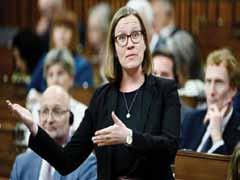
Police using social media accounts as Meta begins blocking news for Canadians
Sun sets on the Shehbaz
regime
OTTAWA - Saskatchewan RCMP say Meta’s decision to remove news links from Facebook and Instagram will affect the way they relay information. In the coming weeks, police forces won’t be able to count on local news popping up in people’s social media feeds as they scroll.
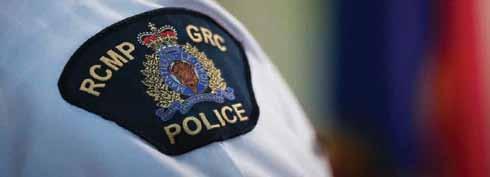
Mounties in Saskatchewan say they are working through ways to maximize their distribution of public safety messaging. Meanwhile, other police forces say they will
use their existing social media presence to keep people informed.Winnipeg police say they will use their accounts to keep people informed of missing persons or breaking news. Meta is set to remove all news for Canadian users in response to the Liberal government’s Online News Act, which requires some tech giants to pay for news content shared or repurposed on their platforms.
Source: ctvnews.ca
Census workers logged hundreds of cases of violence, harassment by public: documents

OTTAWA - Statistics Canada documents show workers who went door-to-door to collect data for the 2021 census logged hundreds of workplace injuries and at least 15 assaults by members of the public.
The data tables obtained by The Canadian Press through access-to-information law list 680 injury reports, including more than 280 cases of harassment or violence.
In some of the most extreme examples, data show employees were punched, threatened with firearms, spat on or sexually assaulted.
In one case, a census interviewer was assaulted by a resident using a “pellet gun,” while another had a “gun pointed at her from another vehicle,” the documents say. One worker was knocked down stairs after being punched in the face by a resident, resulting in a trip to the hospital. Another census employee was unwillingly detained in the home of an angry resident, the documents say. The event was reported to the
RCMP. In at least three separate instances, people collecting data for Statistics Canada reported that they were sexually assaulted by members of the public. The Canadian government collects national population data every five years, and Statistics Canada representatives are sent to visit households that are late to submit their census questionnaires. The injury reports from such staffers showed there were 137 cases of people’s dogs being aggressive or biting them, along with 158 slips, trips or falls.
5 Things to Know newsletter: Sign up to start your day with the top stories Details pertaining to the total number of assaults and psychological injuries are redacted in the documents, as is information about any workplace fatalities. Other categories of injuries included vehicle accidents, “potential contamination” and other “emergency” situations. The total number of incidents for each is also redacted. Source: .ctvnews.ca Source:ctvnews.ca


• National Assembly stands dissolved after President Alvi signs summary
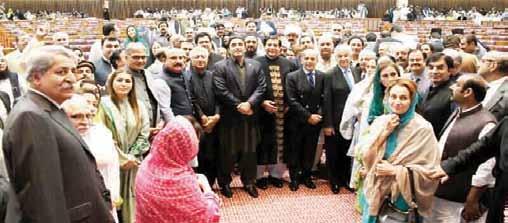
• Premier says he has ‘three days’ to evolve consensus on interim PM, due to meet NA Opp leader today
• PPP-proposed Jalil Abbas Jilani emerges as ‘strong contender’ for coveted slot
• Balochistan CM ‘in no hurry’ to send dissolution summary; Sindh Assembly remains
in session
ISLAMABAD: President Arif Alvi on Wednesday dissolved the National Assembly three days before the completion of its fiveyear tenure, shortly after a summary signed by Prime Minister Shehbaz Sharif, advising the dissolution of the lower house, was sent to the Presidency.. Source: dawnnews.com
Senate passes resolution urging eCP to hold timely elections
The Senate on Wednesday passed a resolution urging the Election Commission of Pakistan (ECP) to take measures for holding general elections across the country within the stipulated time given under Article 224 of the Constitution (time of election and by-election). Presented by
JI Senator Mushtaq Ahmad, the resolution also asked all the state institutions to assist, in every possible manner, the ECP in holding polls. The resolution comes as the government gears up to dissolve the National Assembly (NA) today, three days ahead of its mandated period, following which elections are supposed to be held within 90 days.However, ministers have recently stated that there was a possibility of a delay in holding the next general elections due to constitutional requirements. Earlier this week, Interior Minister Rana Sanaullah said 2023 was not an election year while Defence Minister Khawaja Asif stated polls were “due in November”
Source: dawnnews.com
Somalia parades four Al Shabab
‘brides’ in military court
Four Somali women have appeared before a military court in Mogadishu, facing charges related to terrorism, according to The East African reported The quartet, named Khadra Mohamed Isse, Aisha Muhyadin Mohamud, Zahra Hussein Isse and Naima Farah Sheikhdoon were accused of assisting Al Shabaab leaders in Lower Shabelle region, south of the Somali capital Mogadishu. The prosecutor insisted on Tuesday that the women tried to share false information with the government security personnel when they were intercepted on April 21, 2023 at a security checkpoint, some 50 km south of Mogadishu, generally known as K50.

As evidence against the four women, said to
be wives of leaders of the extremist group Al Shabaab, the court learnt that they were seized and apprehended while travelling in a vehicle with bags packed with explosive devices.
Source: somalitimes.co.uk
Bangladesh: Cyber Security Act: Discussions should be held with the media
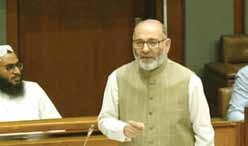

and those who have been arrested and imprisoned under the act should be released, said the council in a statement.
The statement was signed by council President Mahfuz Anam and General Secretary Dewan Hanif Mahmud.
The Editors’ Council yesterday said a discussion with media stakeholders should be held on the proposed Cyber Security Act before it is finalised so that the law doesn’t become a tool to curtail press freedom.
Since the cabinet in principle decided to repeal the Digital Security Act (DSA), cases filed under the act should also be withdrawn
Ever since the enactment of DSA in 2018, the Editors’ Council and other media stakeholders expressed serious concerns. The council is waiting to see where the government stands regarding the replacement of the DSA with the Cyber Security Act. “The government did not take into account the concerns of media stakeholders, including the Editors’ Council, when it enacted the Digital Security Act in 2018.“It was expected that the stakeholders would be consulted and their views would be taken into consideration in case of an amendment or repeal...
Source:thedailystar.net
Muharrum 24,1445 August 11, 2023 6
trudeau’s new House leader wants question period to become an hour Canadians watching can be proud of
nA t & P AK n ew S
A Brief Look into History: Pakistan’s Independence Day
By Khadija Nadeem, Miracle’s editorial board member
Pakistan has a rich and complex history that is deeply intertwined with the struggle for independence from British colonial rule. The country’s founders envisioned a sovereign state that would provide a home for Muslims in the region, and they worked tirelessly to achieve this goal. On August 14, 1947, Pakistan finally gained its independence, and the people of the country celebrated the birth of a new nation.
Independence Day is a significant holiday in Pakistani culture, as it marks the country’s liberation and the beginning of a new era.
By examining the historical factors that led to the creation of Pakistan, we can gain a deeper understanding of the challenges and triumphs that have shaped this vibrant and diverse nation. The British colonial rule in India had a significant impact on the region, including the emergence of the Muslim League and the demand for a separate state for Muslims. The Muslim League was a political party formed in 1906 with the goal of providing Muslims with representation in government. The struggle for independence was marked by numerous protests, strikes, and demonstrations, as well as acts of civil disobedience and nonviolent resistance. Throughout this period, key figures such as Muhammad Ali Jinnah played a crucial role in advocating for the rights of Muslims and pushing for the creation of a separate state. Jinnah’s leadership and vision were instrumental in the establishment of Pakistan as an independent nation, and his legacy continues to inspire Pakistanis today.
The Lahore Resolution, which was passed by the Muslim League in 1940, called for the creation of an independent Muslim state in India. This resolution was a crucial step in the struggle for independence, as it provided a clear vision and goal for the Muslim community. Later on, The Quit India Movement, which was launched in 1942, called for the immediate withdrawal of British colonial rule from India. This movement was met with violent repression by the
British authorities, but it helped to galvanize the Indian people and inspire them to continue the struggle for independence. World War II’s profound impact weakened the British Empire and provided new opportunities for resistance and rebellion. Many Indian soldiers fought bravely in the war, but their contributions were not always recognized or appreciated by the British authorities. The Direct Action Day, which was organized by the Muslim League in 1946, led to widespread violence and rioting in India and marked a turning point in the struggle for independence. The partition of India, which followed shortly thereafter, led to the creation of Pakistan as a separate Muslim state. The Partition of India was a major event in the history of the Indian subcontinent, and it had far-reaching consequences for the region and its people. The Partition was marked by widespread violence and displacement, as millions of people were forced to leave their homes and migrate to new territories. Despite the challenges and hardships of the Partition, it also marked a new beginning for the people of India and Pakistan. It was a time of great change and transformation, as new nations were born and new identities were forged. To commemorate the Partition, there are numerous events and activities that take place across India and Pakistan. . Although the Partition was a complex and difficult period in the history of India and Pakistan, it also represented a time of great hope and possibility. It is a time to remember the sacrifices of those who came before us, and to reflect on the challenges and opportunities that lie ahead.
Jinnah’s tireless efforts to promote the rights and interests of Muslims in India were instrumental in the creation of Pakistan as an independent nation. The first Pakistani government faced numerous challenges in the early years of independence, including the task of nation-building and the need to establish a new political and economic system that lined up with Muslim ideals. The role of the military was also crucial during this period, as it helped to maintain stability and
security in a time of great uncertainty. Despite these challenges, the Pakistani people were able to build a new nation that was based on the principles of democracy, equality, and justice. The early years of independence were marked by the development of a distinct Pakistani identity, which was shaped by the country’s rich cultural heritage and its unique history and geography. Today, Pakistan is a vibrant and diverse nation that is home to millions of people from different ethnic and religious backgrounds. Despite the many challenges that it has faced over the years, Pakistan remains a beacon of hope and inspiration for people around the world who are struggling for freedom, justice, and equality.
One of the most significant events today, is the national flag hoisting ceremony in Islamabad, which is attended by the President, Prime Minister, and other dignitaries. In addition to this ceremony, there are also numerous cultural events and celebrations that take place across Pakistan. These events include music and dance performances, parades, and other festivities that showcase the rich cultural heritage of the Pakistani people.
The significance of Independence Day in Pakistani culture cannot be overstated. It is a time when the Pakistani people come together to celebrate their freedom and independence, and to reflect on the sacrifices that were made to achieve these goals.
It is also a time to renew their commitment to the principles of democracy, equality, and justice that are enshrined in the Pakistani constitution.
Independence Day is a truly special occasion in the history of Pakistan, and it is a time to reflect on the meaning of freedom and democracy. It is a time to remember the struggles and sacrifices of the Pakistani people, and to honor their courage and determination in the face of adversity. As we celebrate Independence Day, we are reminded of the importance of our rights, and we are inspired to continue the fight for them. We are reminded that these values are not just abstract concepts, but they are
living, breathing ideals that must be defended and protected at all times. In Pakistani culture, Independence Day is a time to come together as a community, to celebrate our shared heritage and traditions, and to renew our commitment to the principles that hold up our society. It is a time to honor the sacrifices of our ancestors, and to look toward the future with hope and optimism. I am proud to be a part of the Pakistani community, and I am honored to celebrate Independence Day with my friends and family. I look forward to continuing the fight for freedom and democracy, and to working together to build a brighter, more prosperous future for all the people of Pakistan. 76 Years passed and Pakistan became independent. A dream seen by Allama Iqbal. Quaid-e-Azam nurtured and came into being after cultivating the blood and dignity of millions of people. Just think if this is the same region for which a bloody history was written, where those taking turns of power are proudly scattering the pieces of the constitution and the law is their slave. Supreme Court, the biggest court of the country, blood is shed every night and the judiciary is slapped on the face of the judiciary every day in one way or the other. Be it the elections of Punjab and Khyber Pakhtunkhwa or any other matter, everything has become a sight of lawlessness. And kept pushing the country’s politics into a dead end. The way Imran Khan’s four-year government was overthrown and humiliated by the facilitators is unprecedented in the history of Pakistan. Back-breaking inflation, lawlessness, load shedding has pushed the people into the depths of poverty. Whether it is the November events or the arrest of Imran Khan, both Sharif and Zardari have left no stone unturned to make Nawaz Sharif the prime minister for the fourth time. A long list of cases has been made against Imran Khan and by all means he and his party should be expelled from the coalition.
Happy Independence Day!
Here’s a look at what’s happened in Canada’s record-breaking wildfire season so far
News Coninued from Page 1
Fires Concentrated In Western Canada
At the beginning of May, more than 819 wildfires were burning in Canada, the majority of which were in Alberta and British Columbia, the Canadian Interagency Forest Fire Centre (CIFFC) statistics show. Temperatures in the two
provinces were high, increasing the fire risk for communities, particularly in the northern regions. B.C.’s fires were already breaking records by May 8. At that point, the province had reported 131 fires since January, which is a little higher than the 10-year average. As fires grew, several communities were forced to evacuate, including the East Prairie Metis Settlement, one of several
Indigenous communities hit hard by the wildfires. More than 155,000 people forced to evacuate their homes due to fire and smoke so far, the highest number of evacuations in a given year compared to the past four decades.
Where We’re At Now?
Currently, there are 1,148 active fires in Canada, with 13.3 million
Miracle Media Group Inc.©
Contact Info
Mailing and Office Address 9160-136A Street Surrey BC. V3V 7Z8 Canada Ph: 604-690-0400



Fax: 604-582-7809
Founder : Nusrat Hussain Editor in-Chief
M. Naseer Pirzada
Sub-Editors: Misbah & Sabeeh
Advertising
Ph: 604-690-0400
Emails: info@telus.net miraclenews@telus.net editor@telus.net

Editorial Board : Mr.Shams Jillani, Mr Aslam Hayat, M.A.L. Naumani, Ms.Khadija Nadeem
Graphic Design: Design Teams
Copyright ® 2001 Miracle Media Group Inc. All Rights Reserved
Printed in Canada
Phone: 604-690-0400
Emails: miraclenews@telus.net miraclenewsg@gmail.com info@miraclenews.com
Website: www.miraclenews.com
Contents
IMP ortA nt note:
hectares hectares — or 133,000 square kilometres — burned to date.The majority of fires are burning in B.C. and the N.W.T., the latest data from the CIFFC’s dashboard shows. Canada has surpassed the total number of fires seen in 2022.
As of Wednesday, there were 5,550 fires that have burned in Canada.
Source: ctv.ca
Imran Khan’s ‘life under threat’ in jail, says Pakistan ex-PM’s party
News Coninued from Page 1
Jazeera the former prime minister is not being allowed to meet his lawyers for the last two days.
He said the party leadership is “extremely concerned” about Khan’s wellbeing.“Our priority is Khan’s safety and security. We have reasons to believe his life is under
threat and I urge the country’s higher courts to take notice and we do hope that justice will prevail,”
Qureshi, also a former foreign minister of Pakistan, told Al Jazeera.
Imran Khan says his arrest is an ‘attack on democracy’
Qureshi said the jail in Punjab province where Khan was imprisoned did not have adequate facili-
ties that must be granted to him due to his stature as an ex-premier. “Khan has not been given his rights as a prisoner. We are facing challenges in gaining access to him. We don’t know what kind of food is he being given, we don’t know how is he being treated there,” he said.“The court order was to transfer him to Adiala jail but instead he was taken
to Attock prison, and nobody has explained to us why that is so,” he said, referring to the two jails in Punjab province. Attock is situated 100km (62 miles) north of the garrison town of Rawalpindi in Punjab. Pakistani authorities have not given any clarification for the change.
Source: .aljazeera.com/news
Letters to the editor and Articles do not reflect the opinion of the Miracle media group. We do not publish anonymous letters or the letters of the people who do not disclose their identity to ‘The Miracle.’ A writer can use a pen name or request ‘The Miracle’ to withhold his / her identity. Please include your daytime telephone number for the confirmation of your letter. We regret the inconvenience.
Note:
The Miracle requests to all readers to respect any published Islamic material including Allah’s name and Prophet Muhammad (SAW) and quranic verses. Please recycle those pages and avoid throw them in the garbage.
Muharrum 24,1445 August 11, 2023 7
MIR A LE THE THE MIR A LE Faith Locals Ediorial/Opinion Pak/Can. News Int.News /M.East Politics Health Women Youth Sports Pakistan/ Urdu 5 3,14-20 7 6 8 9 10 10 103,14-206 23-32
of
Miracle Media is Member of : National Ethnic Press and Media Council
Canada
e DI tor IA l
Armenians face genocide in Azerbaijan, former International Criminal Court prosecutor warns
KORNIDZOR, ARMENIA - The former chief prosecutor of the International Criminal Court warned that Azerbaijan is preparing genocide against ethnic Armenians in its Nagorno-Karabakh region and called for the UN Security Council to bring the matter before the international tribunal.
A report by Luis Moreno Ocampo issued Tuesday said Azerbaijan’s blockade of the only road leading from Armenia to Nagorno-Karabakh seriously impedes food, medical supplies and other essentials to the region of about 120,000 people.
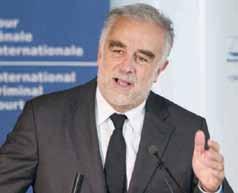
“There is a reasonable basis to believe that a genocide is being committed,” Ocampo’s report said, noting that a UN convention defines genocide as including “deliberately inflicting on the group conditions of life calculated to bring about its physical destruction.” “There are no crematories and there are no machete attacks. Starvation is the invisible genocide weapon. Without immediate dramatic change, this group
Two dead after Lebanon’s Hezbollah fight with residents of Christian town
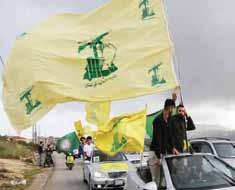
Fighting began after a Hezbollah truck overturned in the town of Kahaleh, and residents closed roads. Two people were killed in fighting between members of the Shia armed group Hezbollah and residents of a Christian town after the residents surrounded an overturned truck, in the worst clash between Hezbollah and its opponents in Lebanon since fighting broke out in Beirut two years ago.
of Armenians will be destroyed in a few weeks,” the report said. Nagorno-Karabakh is a region within Azerbaijan that came under the control of ethnic Armenian forces backed by the Armenian military in separatist fighting that ended in 1994. Armenian forces also took control of substantial territory around the region.
Azerbaijan regained control of the surrounding territory in a six-week war with Armenia in 2020...Source: ctvnews.ca
The truck – which Hezbollah said it owned – overturned on a downhill turn near the mountain town of Kahaleh on Wednesday evening and residents swiftly shut down the road around it. The armed group, which dominates Lebanon militarily, said that one of the dead was its member, and that “militias” had attacked the crew.
Local security sources said that the other person killed was a Christian resident of the town, which lies 12 kilometres southeast of Beirut, on the main road from Damascus. There were no details on the contents of the
truck, but the Lebanese Forces, a Christian party opposed to Hezbollah, accused the group of using it to transport weapons. The local man killed was named as 64-yearold Fadi Bejjani. His son Youssef said that they had tried to get close to the truck after it had flipped. “We were a metre away but couldn’t see what was inside the truck,” Youssef Bejjani said. ..Lebanon aired footage of men in plainclothes shooting rifles in the street... Source:aljazeera.com
uS says no framework agreed yet for Israel-Saudi normalisation deal

The former president lobbed the insults at Smith just days after the Department of Justice asked a judge to approve a protective order stopping Trump from publicly disclosing evidence. Federal prosecutors contend that Trump is seeking to “try the case in the media rather than in the courtroom.”
WINDHAM, N.H. - Former U.S. President Donald Trump on Tuesday blasted special counsel Jack Smith anew and vowed to continue campaigning on his criminal cases even as prosecutors seek a protective order to limit the evidence that he and his team can share. In the early voting state of New Hampshire, Trump assailed Smith as a “thug prosecutor” and a “deranged guy” a week after being indicted on felony charges for his efforts to overturn the results of the 2020 election in the run-up to the insurrection at the U.S. Capitol on Jan. 6, 2021.
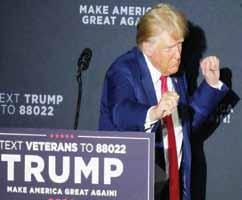
Biden
President Joe Biden on Wednesday signed an executive order that will narrowly prohibit certain United States investments in sensitive technology in China and require government notification of funding in other tech sectors. Biden said in a letter to Congress he was declaring a national emergency to deal with the threat of advancement by countries like China “in sensitive technologies and products critical to the military, intelligence, surveillance, or cyber-enabled capabilities”. The long-awaited order authorises the US treasury secretary to prohibit or restrict certain US investments in Chinese entities in three sectors: semiconductors and microelectronics, quantum information technologies, and certain artificial intelli-
The judge overseeing the case has scheduled a hearing over the protective order for Friday morning. Trump’s lawyers have argued that the prospective order is too broad and would restrict his First Amendment rights of free speech, something Trump echoed on stage Tuesday. “I will talk about it. They’re not taking away my First Amendment,” Trump said, speaking to supporters during a rally at a high school in the southeastern New Hampshire town of Windham.
The former president said he needs to be able to respond to reporters’ questions about the case on the campaign trail -- something he has not made a practice of doing -- and cited the movie “2000 Mules,” which made various debunked claims about mail ballots, drop boxes and ballot collection in the 2020 presidential election...Source: ctvnews.ca/
US President Joe Biden’s administration has said more discussions need to happen before a potential deal to normalise relations between Saudi Arabia and Israel can be reached. White House spokesperson John Kirby said on Wednesday that the two countries have not

agreed on a shared framework for negotiations, playing down speculation over a possible deal that news outlets have reported could include a US security guarantee for Saudi Arabia. There’s still a lot of discussing to happen here,” Kirby told reporters.“There is no agreed-to set of negotiations, there’s no agreed-to framework to codify normalisation or any of the other security considerations that we and our friends have in the region.”Fostering stronger ties between Saudi Arabia and Israel – two top US allies in the Middle East – has become a central focus of the Biden administration’s policy in the region. While Washington has not commented on the specifics of a potential Israeli-Saudi normalisation agreement, US officials have said they are seeking such a pact. Source: aljazeera.com
Syrian reporter and three soldiers killed in roadside bombing: State media

A Syrian reporter and three Syrian government soldiers have been killed in the country’s southern Deraa governorate in a roadside bombing, according to Syrian state news agency SANA.
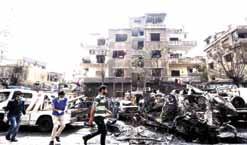
gence systems.
Senior administration officials said that the effort stemmed from national security goals, rather than economic interests and that the categories it covered were narrow in scope. The order seeks to blunt China’s ability to use US investments in its technology companies to upgrade its military while also preserving broader levels of trade that are vital for both nations’ economies.
The US and China appear to be increasingly locked in geopolitical competition, along with their deep trade relationship as the world’s two largest economies. Biden administration officials have insisted that they have no interest in “decoupling” from China. Yet, the US has limited the export of advanced computer chips, sought to limit investments in China and kept the expanded tariffs set up by former President Donald Trump. The move could fuel tensions between the world’s two largest economies, although US officials insisted the prohibitions were intended to address “the most acute” national security risks and not to separate the two countries’ highly interdependent economies...Source:ctvnews.ca
Firas al-Ahmad, a reporter for the Damascus-based outlet Sama TV, was killed during the bombing on Wednesday. An earlier statement said a cameraman had also been killed but an update by SANA later reported he was alive after being rescued by local villagers. “The car carrying Firas and the army personnel was targeted by an IED [improvised explosive device] planted by terrorists
on a road in the area of al-Shayyiah in [Deraa] countryside, claiming his life along with two members of the army immediately,” a source told SANA, before adding that a third soldier died later on. Source: aljazeera.
Fiji: Migration quickly becoming an important sector in the Pacific
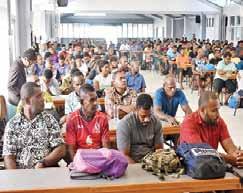
based on a survey of over 2000 workers from Tonga, Kiribati and Vanuatu.
“Alongside the natural resource (particularly fishing) and tourism sectors, international labour mobility has been one of the most important income sources for Pacific countries, especially during the pandemic. Remittances finance essential household consumption and strengthen financial resilience in times of income shocks,” the report said.
Migration is quickly becoming an important economic sector for Pacific Island countries apart from tourism and fishing, according to the latest Pacific Economic Update released in Suva this week.
Titled: Recovering in the Midst of Uncertainty, the report included a special focus on: Harnessing the Benefits of Pacific Migration,
“Labour migration also enhances knowledge transfers and can be complementary to skills enhancement.” Labour migration from the Pacific to the more developed economies had intensified in recent times with the opening up of Australia and New Zealand through their respective workers’ schemes that have increasingly become more accommodative to semi-skilled and low-skilled workers from the Pacific region...Source:fijitimes.com

Muharrum 24,1445 August 11, 2023 Int & M. eAS t n ew S 8
trump vows to keep talking about criminal cases despite prosecutors pushing for protective order
issues executive order restricting uS investment in Chinese tech
trudeau separation: Divorce is common for most people, but still rare for political leaders
Over the long term, the political impact of the separation or divorce of public figures has tended to reflect prevailing attitudes towards divorce within the general population.

The British royal family is an excellent example. Almost a century ago, in the 1930s, divorce was extremely difficult to obtain in most countries and divorced people were widely believed to be unstable and immoral. When King Edward VIII announced he intended to marry Wallis Simpson, a twice-divorced American, he created a crisis within Britain. Simpson’s divorces were the issue, but the fact that she was American didn’t help. Edward was forced to abdicate his throne so that he could marry Simpson and the couple lived, effectively in exile, for the rest of their lives.
Since then, divorce laws in many countries have been liberalized and divorce is more an administrative process than a judicial procedure. Divorce is common throughout most societies and there is little stigma attached to it. Edward was the great uncle of King Charles, who divorced his wife Diana in 1996 when he was still the Prince of Wales
following a very public breakup that involved allegations of adultery on both sides. Charles, as a divorcé, then married Camilla Parker-Bowles, herself divorced, and he was crowned king without any objection.
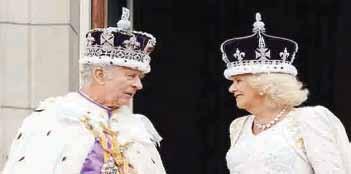
Divorce can bring scrutiny
Most people are aware of the complexities of relationships, even though it is common to blame one partner more than another. Politics can place peculiar pressure on couples, but this is true of many other professions and it’s up to individuals to balance their work and family lives.
Although divorces are common among Canadian politicians, divorced premiers and prime ministers are rare. It might be that voters are perceived as likely to penalize a divorced person and make them harder to elect, and there are strong political reasons not to separate or divorce while in office. It directs intense scrutiny on the couple and their behaviour, as well as retrospective analyses of their relationship.
Earlier sensational couple-related events at the federal level include the separation and subsequent divorce of Pierre and Margaret Trudeau and the very public breakup of Foreign Affairs Minister Peter MacKay and MP Belinda Stronach in 2005.
The first was accompanied by scandals and rumours of infidelity, the second was provoked by Stronach crossing the floor to join the Liberals — a kind of political adultery.
Trudeau separation
It’s unlikely that there will be significant public reaction to the separation of Prime Minister Justin Trudeau and Sophie Grégoire Trudeau, not least because divorce has become part of the family landscape in Canada. There are about three million divorced people in Canada and there can be few Canadians without a divorce in their family or among their friends.
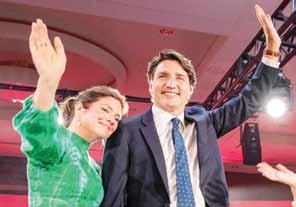
The announcement of the prime minister and Grégoire Trudeau’s separation stressed their ongoing love and respect for each other and the continued integrity of their family. The message was “nothing to see here” — and we can expect to see photographs of them together with their children to reinforce this image.
Any political consequences will unfold in the next months. Politicians will express sympathy and say that this is a personal matter with no political importance, and that it would be improper for them to comment other than to wish the separated couple well. But of course the images of Conservative Leader Pierre Poilievre and the NDP’s Jagmeet Singh with their wives — and Trudeau without his might resonate for some people. The separation will also reinforce the belief that some people hold that Trudeau is not a nice man. If either is primarily blamed for the separation, it will almost certainly be the prime minister, not his wife.
Some observers will note the timing of the separation announcement, which followed
soon after a cabinet reshuffle. The decision to separate might have been made weeks earlier, with the timing of the announcement strategically planned.
In other words, this could have been a decision made in light of political considerations — despite the insistence that the separation itself is a personal matter. Perhaps we are seeing Trudeau preparing, politically and personally, for the next election.
If there appear to be few political downsides to this separation, there are no upsides. It would certainly be preferable to announce the separation sooner rather than later — further out from the election than closer — and August is a month when many people tune out of current affairs.
Withholding the announcement also risked it leaking to the media, with the implication there was something to hide. As it is, the separation might be conversation at the cottage or over a barbecue for a day or two, but it will be old news by the time people re-engage in September.
Source: theconversation.com
Some federal parties resisting foreign interference probe looking beyond China: Singh
OTTAWA - New Democrat Leader Jagmeet Singh says his party faces resistance to including countries other than China in the terms of reference for a public inquiry on foreign interference. House leaders from the main federal parties have been meeting over the summer in an attempt to set the terms and timeline for an inquiry and to appoint
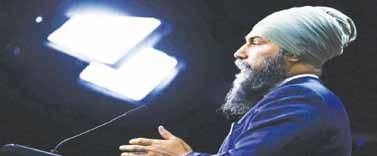
a potential leader. The talks follow media reports earlier this year that alleged China tried to interfere in the last two federal elections, although parties agree it did not affect the outcome of the elections. Singh says the NDP is pushing to have the probe look into meddling attempts by additional countries such as Russia, India and Iran. He
says community groups have raised serious allegations about those countries, claiming they are experiencing foreign interference. Singh says other parties have not been clear about their stances on whether the inquiry should look beyond China, adding some parties have resisted including the other three countries. Source: ctvnews.ca

Conservatives launch massive ad campaign amid surge in polls
— all while his party is soaring in the polls and his main rival is going through a public split with his spouse.
“This is not a branding campaign. This is an amplification of who Pierre is and always has been,” said Regan Watts, a former adviser to several ministers in the Harper government.
prompting Maclean’s magazine to ask “Why is Pierre Poilievre so angry?”
A senior Conservative source confirmed to CBC News that the party will spend more than $3 million over three months to push three bilingual ads in every province and territory.
Polling analyst Éric Grenier, the author of TheWrit.ca, says the timing of the campaign makes sense.
Multimillion-dollar ad buy comes as polling shows Tories as much as 10 points ahead of Liberals. The Conservative Party of Canada is launching a multimillion-dollar ad campaign that depicts its leader, Pierre Poilievre, as a family man who wants to fix the country

“He’s warm, he’s kind, he’s empathetic and he listens… It’s important for people to delineate between Parliament Hill and the rest of the country, engaging with Canadians one-on-one. “ Two of the three ads focus on showing a more human side of Poilievre, whose aggressive, bulldog style has seen him spar with journalists and politicians alike,
“Usually when there is a new leader in place and Canadians don’t know a lot about them, there is an attempt to try to make them seem more like a likable person,” he said.
The first ad features voice-over from Poilievre’s wife, Anaida, a Montreal-raised Venezuelan immigrant who has been described in a Quebec newspaper as Poilievre’s
“hidden ace” in Quebec. ”Who is Pierre Poilievre?” she narrates, before showing the Conservative leader at different stages of his life, including playing hockey while growing up in Calgary, and playing with his own children. “And I know him as a guy who loves me for who I am,” she says in the ad. “A Canadian, who came to call Canada home, and his wife.” It was released less than a week after Justin Trudeau’s high-profile separation from his wife, Sophie Grégoire Trudeau. The second ad shows Poilievre sitting with his son, doing a puzzle.
“Everything feels broken in Canada. Unaffordable, unsafe, divided. But we can put the pieces back together,” he says in voice-over. The third ad is an attack on the carbon tax, which Poilievre says he would undo if elected. Source: ctvnews.ca
Prophet Muhammad’s (S) Gift of universal Freedom to Humanity
Coninued from Page 5
world that the Quran is the only book that contains the complete set of Permanent Values.
Are we, Muslims, ready for this challenge?
Are we ready to challenge the Pharaohs, the Hamans, and Qaroons of the world with the Quran? This is what our Prophet (S), whom we love so dearly, did to liberate human beings. This is how he “… lift[ed] from them their burdens and the shackles that were
upon them” (7:157). Today, the Muslim world is still dominated by modern Pharaohs (dictators and corrupt rulers), modern Qaroons (capitalist parasites), and modern Hamans (defenders of religious status quo).
It is our duty to liberate the masses from their clutches through the message of the permanent values contained in the universal constitution of Al-Quran.
This must be done, however, through constitutional and peaceful means. It requires, firstly, great wisdom, up-to-date knowledge,
objective reasoning, and deep understanding of the Quran as a universal constitution, not as a religious book. Secondly, it requires great focus, great patience, and great tolerance. This is what our Prophet (S) struggled for throughout his life. And, therefore, this is his most important Sunnah for us to practice. We certainly cannot follow our Prophet’s Sunnah by being divided into sects, by paying lip service to the Prophet (S), by singing poems in his honor and celebrating his birthday, by evading controver-
sial issues, by passing fatwas against others, by engaging in subjective arguments and endless debates, by resorting to emotional and psychological tactics, by labeling others who disagree, by spreading rumors, suspicions and propaganda, or by resorting to violence. The most urgent task before us is to get down to cleaning our house first before we point fingers at others.
Source: islamicity.org
Muharrum 24,1445 August 11, 2023 l IF e S tyle/Pol I t ICS 9
How extreme heat impacts the human body — and why it eventually kills you?
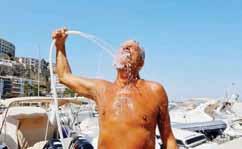 By: Lauren Pelley
By: Lauren Pelley
Around the world, heat records keep being shattered. And it’s proving deadly.More than 100 people have died from heat-related causes in Mexico so far this year, along with dozens across multiple U.S. states. In Arizona — a desert state which has faced several weeks of temperatures above 40 C, breaking (and re-breaking) a five-decade record high — residents keep dying from heat stroke or facing lifethreatening burns after falling on scalding pavement.
Canada isn’t faring much better, with heat warnings throughout the Western provinces and several suspected heat-related deaths in B.C., where a “heat dome” killed more than 600 people in 2021.So why is extreme heat so dangerous to the human body?
Scientists say it’s because high temperatures have a negative impact on multiple organs, putting strain on the heart, muddying your memory, causing rapid dehydration and eventually leading to death if your body can’t cool down fast enough.And those impacts are felt from head to toe.
The Brain
As temperatures rise, your brain can struggle to process information. That drop in cognitive function can impair judgment, and puts people at risk of falling or injuring themselves. In extreme cases, high heat can even cause dangerous brain inflammation. At that point, someone’s nervous system is “really not functioning well because the brain is getting so little blood,” said Stephen Cheung, a senior research fellow at Brock University in St. Catharines, Ont., whose lab studies the impacts of environmental stressors — like extreme heat — on human physiology. Heat also affects mental health, research suggests. Higher temperatures have been linked to higher suicide rates in the U.S. and Mexico, while a study in Bangladesh showed links between a variety of climate-related stressors and the burden of anxiety and depression. Heat is “probably exacerbating people’s existing mental health conditions,” said researcher Amruta Nori-Sarma, an assistant professor in the Environmental Health Department at Boston University’s School of Public
Health. One of her own studies, published by the Journal of the American Medical Association last year, showed days of extreme heat in the U.S. were associated with higher rates of mental health-related emergency department visits for conditions including anxiety, self-harm and substance abuse. When temperatures hit historic highs, it can affect every organ in the body as well as mental cognition. But what does that feel like? CBC’s Lauren Pelley visited a lab where it’s being studied to experience what happens when the body overheats.
The Skin
When the temperature spikes, your skin plays an important role in cooling the body — since humans need to maintain their core body temperature within a “pretty narrow range,” said Larry Kenney, a professor of physiology and kinesiology at Penn State University. “The two main ways that we’re able to control our rising body temperature is by pumping a lot of blood flow to the skin — which is a system unique to humans — and by sweating over most of the body surface area and evaporating that sweat,” he said. But that process can go awry when there’s extreme heat, particularly when it’s coupled with high humidity. Those factors in tandem disrupt the evaporation of sweat so it doesn’t have any cooling impact on the body, while also making you more dehydrated. (Scientists call the concept the wet-bulb temperature, the point where water stops evaporating from a wet thermometer bulb. At 35 C, humans can no longer cool themselves.) Seniors and infants can be at particular risk if their body temperature creeps dangerously high, though Kenney stressed anyone can be affected. “In warm, humid conditions, with humans just going about our activities of daily living, even young
healthy men and women would start to see continuous increases in body temperature,” he said. That can lead to the most serious heat-related illness: heat stroke. When the body’s ability to sweat fails, the internal temperature keeps rising — and can hit more than 40 C in just 10 to 15 minutes — which can lead to permanent disability or death.

The Heart
As body temperature rises, it begins putting strain on the entire cardiovascular system. That’s because more blood is trapped out in the skin as your body tries to cool itself, said Cheung. “What happens is that it places greater strain on your heart because now it has less blood coming back, and it has to work harder to pump that blood out to the rest of the body.” When the heart becomes deficient in oxygen and nutrients, it can lead to potentially fatal conditions like a heart attack, says Daniel Gagnon, a researcher at the Montreal Heart Institute. “There are a lot of studies that show an association between heat extremes, or extremely hot temperatures, and cardiovascular outcomes,” Gagnon said.One new study out of China, published in the journal Circulation, suggested the particular combination of extreme heat and air pollution hiked the risk of having a deadly heart attack, particularly among older individuals, by as much as nearly 75 per cent during a four-day heat wave.
The Lungs
Breathing in hot, humid air can be tough on the lungs, flaring up existing conditions and putting people at a higher risk of other respiratory issues.”Extremes of heat are particularly hazardous to those with respiratory disease,” reads a 2018 editorial in The Lancet medical journal. “Exacerbations of chronic conditions such as chronic obstructive pulmonary disease (COPD) and asthma increase drastically in line with high temperatures, often aggravated by increased air pollution in cities, as well as seasonal allergies.”One observational study in the

U.S. looked at the impact on seniors, and found each 5.6 C increase was associated with a roughly four per cent increase in same-day emergency hospitalizations for respiratory diseases.
The Kidneys
As your body gets dehydrated, it takes a major toll on your kidneys — the organs responsible for filtering your blood by removing wastes and extra water that are eventually flushed out as urine. “Dehydration can cause things like kidney failure or electrolyte imbalance which can also lead to hospital admissions or mortality,” said Gagnon. “It’s a triad of increased stress on the heart, increased body temperature, and fluid strain or dehydration that can cause increased stress on the kidneys.”
Protecting yourself
It all paints a grim picture throughout the entire human body: Extreme heat can damage multiple organs, spike your internal temperature to dangerous levels, and ultimately kill you — unless you’re rapidly able to reverse that process. Cheung says if you start to feel clammy, disoriented and overly thirsty — and if your sweat isn’t actually cooling your body down — you may be entering the danger zone. How hot and humid will your city be in the future? Use this tool to find out if you can, and if things get really bad, the best way to cool down is to get into cold water,” he said. That means plunging yourself into an icy bath, or standing under cold water in the shower. If those aren’t options, he said soaking towels and wrapping them around your body can also help.
“The best thing you can do is to cool down as best as you can,” he said.
Source: cbc.ca/new
Facebook’s spread not linked to psychological harm, study finds
By: Chris Vallance
There is no evidence the global spread of Facebook is linked to widespread psychological harm, an Oxford Internet Institute (OII) study suggests. The research looked at how wellbeing changed in 72 countries as use of the social media platform grew. It counters the common belief that social media is psychologically harmful, the researchers argue.Several countries, including the UK, are considering legislation to protect social media users from online harms.
Meta, which owns Facebook, has faced scrutiny following testimony from whistleblowers and press reports based on leaks that suggested the company’s own research pointed to negative impacts on some users. This research only looked at Facebook
and not Meta’s other platforms, which include Instagram. Prof Andrew Przybylski, of the OII, told the BBC the study tried to answer the question: “As countries become more saturated with social media, how does the wellbeing of their populations look?”

He said: “It’s commonly thought that this is a bad thing for wellbeing. And the data that we put together, and the data that we analysed didn’t show that that was the case.”
Previous OII work carried out by Prof Przybylski also found little association between teenagers’ technology use and mental health problems.
But the report only looked at the overall impact of Facebook use at a national level.
The broad-brush findings would not reveal the impact of Facebook use on groups of people with particular vulnerabilities.
It might, for example, miss negative impacts on small groups of users if they were offset by positive impacts on others, Prof Przybylski accepted. It also did not drill down to
examine the risks presented by certain types of content, such as material promoting selfharm. For Prof Przybylski, the main policy lesson from the study was that researchers needed access to better data from tech firms to answer questions about the effect of social media:
“You know, we have a situation where a handful of people are crying wolf, about social media. But we don’t actually have the data, we don’t have the materials we need to build a wolf detector,” he said. The UK’s Online Safety Bill (OSB) is in the final stages of its parliamentary journey towards becoming law. It is designed to protect people from online harms. But Prof Sonia Livingstone, of the London School of Economics, cautioned that the study’s relevance to the OSB was limited.
“The authors’ broad critique - that screentime anxieties are not much supported by robust evidence - is fair. However, the study reported here is so general as to be of little use to current regulatory or clinical debates,” she told the BBC. And while the OSB prioritises protecting children - the research does not look at youngsters as a separate group and “by and large children are not using Facebook”.
“This reminds me of a conference I went to that asked, ‘what difference did half a century of television make?’. How can there be
one answer?” she said.But she supported the authors’ call for more research based on access to data. The peer-reviewed research by Prof Przybylski and co-author Matti Vuorre is based on a large amount of data provided by Facebook. Both researchers are independent of the company and the research was not funded by the tech giant. Facebook gave the researchers data showing how the number of users in each country grew between 2008 and 2019 divided into two age brackets, 13-34 and over 35. The OII team compared this data with some on wellbeing representing nearly a million people, recorded by the Gallup World Poll Survey.
Overall the researchers say they found no evidence that increasing social media adoption was linked to a negative affect on psychological wellbeing. Prof Peter Etchells, professor of psychology and science communication at Bath Spa University, said the “broad strokes” study was fascinating. But he said - as the authors make clear - it did not say anything about cause and effect. However, it showed the value of the technology companies opening their doors to researchers, he noted.

Source:bbc.com
Heat is “probably exacerbating people’s existing mental health conditions,” said re Source: cbc.ca/new
Muharrum 24,1445 August 11, 2023 10 He A lt H /te CH
wildfires:
The Donnie Creek wildfire is no longer considered a wildfire of note, as fire activity has decreased thanks to fire suppression efforts and rain in the area.
Vancouver Fire and Rescue Services [VFRS] says there’s been a “deeply concerning” increase in fires during the first half of 2023. Public information officer Captain Matthew Trudeau says in a statement that in 2023, there have already been 31 per cent more fires than in the same period last year — the most fires Vancouver has ever experienced in that amount of time.
“VFRS appeals to every member of the community to prioritize fire safety in their daily lives,” said Trudeau.“Simple actions like properly extinguishing cigarettes, using battery
Evacuation orders have been rescinded in the southern Okanagan town of Osoyoos, as the wildfire service makes strong progress on the Eagle Bluff wildfire.
Dozens more properties are on evacuation alert because of the wildfires near Adams Lake, northeast of Kamloops, B.C.
A smoky skies bulletin remains in effect for Fort Nelson, the central and southern Interior and southeastern B.C. Evacuation orders remain in place across B.C., including at Adams Lake and Gun Lake, and north of Lytton.

As of 3 p.m. PT, there are currently 376 active fires in B.C., with 13 fires of note — fires that are highly visible or threatening public safety. The Donnie Creek wildfire that has
lights instead of candles and keeping flammable items away from ignition sources can make a significant difference in preventing fires.” During this time, the service responded to 2,113 calls.
Top cause: smoking materials
VFRS says carelessly discarded smoking materials like matches, lighters, candles, cigarettes and drug-related materials accounted for 57 per cent of all incidents.
Tent fires are down this year, but VFRS says there’s been a 42.3 per cent jump in outdoor fires. “It is crucial for everyone to remain
been burning in B.C.’s north was downgraded on Wednesday, and while it remains out of control, it is no longer a wildfire of note. B.C. Wildfire Service information officer Sharon Nickel says fire activity has decreased and is no longer a threat to infrastructure, prompting the downgrade. There are currently no evacuation alerts or orders associated with the fire. “In the case of the Donnie Creek fire, at this time, it’s simply just a large fire,” she said. Nickel says the region has received rain over the past week — up to 90 millimetres in some areas.
The fire, originally sparked by lightning in mid-May, currently covers about 5,832 square kilometres.
What happens after the Donnie Creek wild-
fire, now larger than P.E.I., stops burning?
Though the area is not heavily populated, the fire was located on the traditional territory of three First Nations and tore through graves, hunting grounds and culturally significant landmarks. It also burned through land used by industry, including oil and gas wells, pipelines, gas plants and compressor stations. On July 29, it was reported that firefighter Zak Muise, 25, died while battling the blaze. Nearly 400 active fires were burning in B.C. as of Wednesday afternoon. It’s hoped cooler, wetter weather through Thursday will give crews a breather, although Environment Canada says lightning is linked to many of the rainstorms forecast across the province. Source: cbc.ca/
city sets record for fires in 1st half of 2023
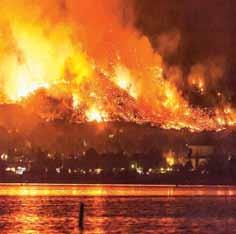

vigilant when engaging in outdoor activities that involve open flames or flammable materials,” saId Trudeau. Structure fires and fires at single-room occupancy [SRO] buildings have also climbed. Trudeau says there have been numerous SRO fires caused by drug users dropping locked butane lighters and setting fire to themselves or their surroundings.Fires have resulted in four deaths so far in 2023. VFRS says three of the fatalities involved smoking materials, while two of the victims were suspected to be impaired by substances. Source: cbc.ca/
The former head of a B.C. private school has netted a 15-year ban from teaching for sending sexually explicit messages to – and trying to meet up with — a person he believed to be a 15-year old boy. A consent resolution agreement posted by the B.C. Teacher Regulation Branch says Mark Louis Pierotti first messaged the person on the dating app
Grindr in late August 2022. The person behind the account listed their age as 21, but was posing as a young male in order to lure sexual predators, a tactic commonly employed by people who term themselves “creep catchers.” The consent resolution agreement says Pierotti messaged the person to invite them over for a drink, at which point the person told him they were actually 15 years old. He continued messaging the person, expressing reservations about messaging with a 15-year-old but suggesting that they were actually 21. However, he made plans to meet up with the person the next day after asking them whether they were 16 – the age of consent for sexual activity. The person replied that they would be 16 in “like four months,” according to the
agreement. “Better not. You are too young and it’s not legal. So when ur of age let me know. I can come say hi and we can meet just so you know I’m not a jerk,” Pierotti replied. Pierotti also said “I’m guessing u have hooked up w older guys before,” and arranged a time and place to meet the person, according to the agreement. It goes onto say that when Pierotti arrived at the meeting place, the person approached his car and began recording their interaction. That video was then posted to Facebook, along with screenshots of the messages. The school fired Pierotti on August 27, and reported him to the Commissioner for Teacher Regulation on Sept. 12. Pierotti relinquished his teaching certificate eight days later. In deciding that a 15-year ban from the
profession is an appropriate consequence, the commissioner noted Pierotti was aware the person he wanted to meet with was purportedly 15 years old.
B.C. man who sent sexual messages to students banned from teaching for 15 years
“After being told that the youth was 15 years old, Pierroti continued to send messages, some with sexual content, and also arranged to meet the youth. Pierroti was aware of the age of consent and that sexual activity with a 15-year-old would be criminal in nature,” the commissioner wrote.
The commissioner also said that Pierotti’s conduct – and the fact that it became public through the Facebook post – undermined public confidence in the education system.
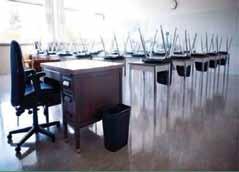
Source:cbc.ca/
A rapidly rising Omicron subvariant called EG.5 — which is circulating in Canada and multiple other countries — has now been designated a variant of interest by the World Health Organization (WHO).
In a new risk evaluation released on Wednesday, the WHO bumped up EG.5 from a variant under monitoring to the second-highest ranking, putting it alongside XBB.1.5 and XBB.1.6, which are also members of the Omicron family tree. While experts say EG.5 appears to be more infectious and able to sneak past our immune defences, there’s also not much evidence to suggest that it causes more severe illness.
“It’s something to certainly keep a close eye on, but I’m not significantly worried about it at this point,” said Dr. Syra Madad, an epide-
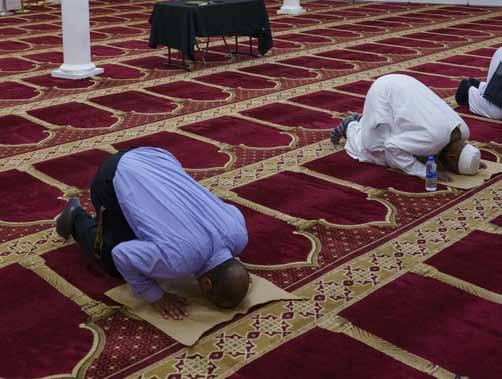
miologist at the Harvard Belfer Center. EG.5 has been circulating in Canada since at least May, according to the Public Health Agency of Canada (PHAC). The subvariant and its offshoots are predicted to have made up 36 per cent of cases in Canada between July 30 and Aug. 5, according to an email shared with CBC News. The agency also said it is aware of EG.5 being found 36 times in municipal wastewater between May 15 and July 21. Modelling data from the U.S. estimates that it has made up 17.3 per cent of all cases in the country over the last two weeks, making it the most common strain.
And globally, the subvariant’s prevalence was more than 17 per cent by the week of July 17 to 23, a “notable rise” from data reported four weeks prior when it was less than eight per cent of samples, the WHO said. While EG.5 is spiking in multiple countries, it’s unclear where it’s driving an uptick in cases as well. Some parts of Canada are seeing a slight increase in COVID-19 cases, according to recent data.
Earlier this summer, most of the country’s wastewater had some of the lowest levels of COVID-19 since analysis began in 2020.
But as of July 27, at least seven of the 39 sites tracked by Canada’s COVID-19 wastewater surveillance dashboard have reported
an increase. In Ontario, for example, data shows that testing positivity has increased from about five per cent to nearly seven per cent within one month. In recent weeks, the United States has also seen a jump in cases and hospitalizations. The WHO said Japan and the Republic of Korea have observed EG.5 cases and hospitalization metrics both

rising, though “no associations” have been made yet between the subvariant and hospitalization rates.
“However, due to its growth advantage and immune escape characteristics, EG.5 may cause a rise in case incidence and become dominant in some countries or even globally,” the WHO noted...Source: ctvnews.ca

Muharrum 24,1445 August 11, 2023 BC new S 11
The latest on the
Vancouver
concerned’
B.C. principal banned from teaching after explicit messages to person posing as a teenager what to know about eG.5, the latest omicron subvariant in Canada? B.C.’s largest wildfire downgraded following wet weather in B.C.’s north Bullay Shah Academy of Canada Pir Afzal Ahmed Naqshbandi Friday Prayer at 1:30 PM (in Summer & Winter) We invite brothers and sisters on last Saturday of each month for a Holy (Darse Quran) at: Unit 102-8268 Scott Road, Surrey Ph: 604-592-9416& Cell:604-760-0096
Fire Rescue ‘deeply
after
Journey to P AK
Art & Culture of Pakistan

The Culture of Pakistan. Pākistāni Saqāfat) is based in the Indo-Persian cultural matrix that constitutes a foundation plank of South Asian Muslim identity.The region has formed a distinct cultural unit within the main cultural complex of South Asia, Middle East and Central Asia. There are differences in culture among the different ethnic groups in matters such as dress, food, and religion, especially where pre-Islamic customs differ from Islamic practices.
The existence of Pakistan as an Islamic state since 1956 has led to the large-scale injection of Islam into most aspects of Pakistani culture and everyday life, which has accordingly impacted the historical values and traditions of the Muslim-majority population. Marriages and other major events are significantly impacted by regional differences in culture, but generally follow Islamic jurisprudence where required.[citation needed]
Civil society in Pakistan is largely hierarchical, emphasising local cultural etiquette and traditional Islamic values that govern personal and political life. The basic family unit is the extended family, although for socio-economic reasons there has been a growing trend towards nuclear families.The traditional dress for both men and women is the shalwar kameez; trousers, jeans, and shirts are also popular among men.
In recent decades, the middle class has increased to around 35 million and the upper and upper-middle classes to around 17 million, and power is shifting from rural landowners to the urbanised elites.
Pakistani festivals, including Eid-ul-Fitr, Eid-ul-Azha, Ramazan, Christmas, Easter, Holi, and Diwali, are mostly religious in origin. Increasing globalisation has resulted in Pakistan ranking 56th on the A.T. Kearney/ FP Globalization Index.
Source: en.wikipedia.org
The Art & Cultural of Pakistan Pakistan’s cultural heritage dates to more than 5,000 years ago, to the period of the Indus civilization. However, the emphasis on Islamic ideology has brought about a strong romantic identification with Islamic culture—not only that of the Indian subcontinent but of the broader Islamic world. Literature, notably poetry, is the richest of all Pakistani art forms; music and, especially, modern dance have received less attention. The visual arts too play little part in popular folk culture. Painting and sculpture, however, have made considerable progress as expressions of an increasingly sophisticated urban culture.
Pakistan shares with the other parts of South Asia the great Mughal heritage in art, literature, architecture, and manners. The ruins of Mohenjo-daro, the ancient city of Taxila, and the Rohtas Fort of Shīr Shah of Sūr are but a few of the places in Pakistan that have been named UNESCO World Heritage sites. The Mosque of the Pearls, Badshahi Mosque, and Shalimar Garden, all in Lahore, are among the country’s architectural gems.
Bhangra
Popular traditional folk dances include the bhangra (an explosive dance developed in Punjab) and khatak steps. The khatak is a martial dance of the tribal Pashtuns that involves energetic miming of warriors’ exploits. There are a number of traditional
dances associated with women; these include a humorous song and dance called the giddha, a whirling dance performed by girls and young women called the kikli, and a form in which dancers snap their fingers and clap their hands while bounding in a circle. The luddi is a Punjabi dance usually performed by males, typically to celebrate a victory—formerly victory in a military conflict but now in a sports contest.
Source: britannica.com
Pakistani Cuisines
Pakistani cuisine romanized: pākistānī pakwān) can be characterised as a vibrant blend of regional cooking styles and flavours from across South, Central and Western Asia, as well as ingredients, recipes and techniques borrowed from the Indian Subcontinent, Persian cuisine and Arab cuisine. The cuisine of Pakistan also maintains certain Mughal influences within its recipes and techniques. The country’s various cuisines are varied from place to place, with its ethnic and cultural diversity, as well as diverse climates and geographical environments, and availability of different produce options.
Pakistani cuisine, as in the food culture of most Muslim nations, is structured around halal principles (similar to Judaism and Kosher), which—for example—forbid pork and alcohol consumption in accordance with Sharia, the religious laws of Islam. Many more details of halal regulations apply to meats, which types of animals are acceptable or “clean” for human consumption—for example, pigs enjoy wallowing in mud, and are thus deemed “unclean”. Further important points declare precisely how animals are to be slaughtered; it must be done quickly and with minimal suffering, with the animal’s awareness of the situation being extremely brief (preferably nonexistent, as stress releases cortisol and adrenaline, potentially spoiling meat quality). The animals must also be raised (more or less) “free-range”, with sufficient freedom of movement provided, as halal principles forbid the consumption of sickly, stressed, abused, beaten, cancerous or otherwise mistreated or unhealthy animals. Additionally, animals that are killed inadvertently, or during accidents or found deceased by the roadside, are forbidden, as the intention was not slaughter in those cases.
International cuisine and fast food are popular in major cities such as Islamabad and Karachi; blending local and foreign recipes (fusion food), such as Pakistani Chinese cuisine, is also common in large urban centres. As a result of lifestyle changes, health trends, and new dietary research being published, traditional ingredients such as masala (premixed and ready-to-use) and ghee (clarified butter)—with its health benefits and high smoke pointhave been increasingly popular.
Languages of Pakistan
Pakistan is a multilingual country with dozens of languages spoken as first languages. The majority of Pakistan’s languages belong to the Indo-Iranian group of the Indo-European language family.
Urdu is the national language and the lingua franca of Pakistan, and while sharing official status with English, it is the preferred and dominant language used for inter-communication between different ethnic groups. Numerous regional languages are spoken as first languages by Pakistan’s various ethno-
linguistic groups. Languages with more than a million speakers each include Punjabi, Pashto, Sindhi, Saraiki, Urdu, Balochi, Hindko, Gujari, Pahari-Pothwari[a] and Brahui. There are approximately 60 local languages with fewer than a million speakers.
Religions in Pakistan
The official religion of Pakistan is Islam, as enshrined by Article 2 of the Constitution, and is practised by approximately 96.47% of the country’s population. The remaining 3.53% practice Hinduism, Christianity, Ahmadiyya Islam (recognised as a non-Muslim group by the Pakistani constitution[8]), Sikhism and other religions.
A few aspects of secularism have also been adopted by Pakistani constitution from British colonial concept. However, religious minorities in Pakistan often face significant discrimination, subject to issues such as violence and the blasphemy laws.
Muslims comprise a number of sects: the majority practice Sunni Islam (estimated at 90%), while a minority practice Shia Islam (estimated at 10%).Most Pakistani Sunni Muslims belong to the Hanafi school of jurisprudence, which is represented by the Barelvi and Deobandi traditions. However, the Hanbali school is gaining popularity recently due to Wahhabi influence from the Middle East. The majority of Pakistani Shia Muslims belong to the Twelver Islamic law school, with significant minority groups who practice Ismailism, which is composed of Nizari (Aga Khanis), Mustaali, Dawoodi Bohra, Sulaymani, and others.
Before the arrival of Islam beginning in the 8th century, the region comprising Pakistan was home to a diverse plethora of faiths, including Hinduism, Buddhism, Jainism and Zoroastrianism.
Constitutional provisions
The Constitution of Pakistan establishes Islam as the state religion, and provides that all citizens have the right to profess, practice and propagate their religion subject to law, public order, and morality.



The Constitution also states that all laws are to conform with the injunctions of Islam as laid down in the Quran and Sunnah.
The Constitution limits the political rights of Pakistan’s non-Muslims. Only Muslims are allowed to become the President[26] or the Prime Minister. Only Muslims are allowed to serve as judges in the Federal Shariat Court, which has the power to strike down any law deemed un-Islamic, though its judgments can be overruled by the Supreme Court of Pakistan.[ However, non-Muslims have served as judges in the High Courts and Supreme Court. In 2019, Naveed Amir, a Christian member of the National Assembly moved a bill to amend the article 41 and 91 of the Constitution which would allow non-Muslims to become Prime Minister and President of Pakistan. However, Pakistan’s parliament blocked the bill.
Sports in Pakistan
Sport in Pakistan is a significant part of Pakistani culture. Cricket is the most popular sport in Pakistan, while field hockey, polo, and squash are also popular. Traditional sports like kabaddi and other well-known games are also played. The Pakistan Sports Board was created in 1962 by the Ministry of Education as a corporate body for the purposes of promoting and developing uniform standards of competition in sports in Pakistan comparable to the standards prevailing internationally, and regulating and controlling sports in Pakistan on a national basis. The Ministry of Culture, Sports and Tourism, now has control over the Pakistan Sports Board. The PSB controls all 39 sporting federations. The Pakistan Sports Board is supported by the Pakistan Sports Trust, which assists hard up players and associations so they can continue participating in sports.
Over recent years there has been an increase in sporting activity in Pakistan, with Pakistani sportsmen and women participating at many national and international events. Also, more international tournaments now take place in Pakistan. The size of the teams Pakistan sends, and the number of events they participate in, such as the Olympic Games, Asian Games, World Games, and Commonwealth Games has increased since the turn of the century...Source: en.wikipedia.org
Muharrum 24,1445 August 11, 2023 12
Historical Places of Pakistan



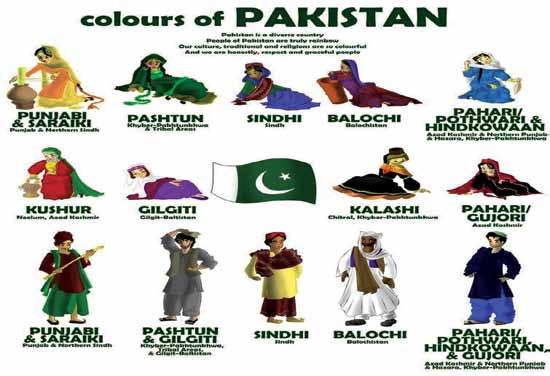
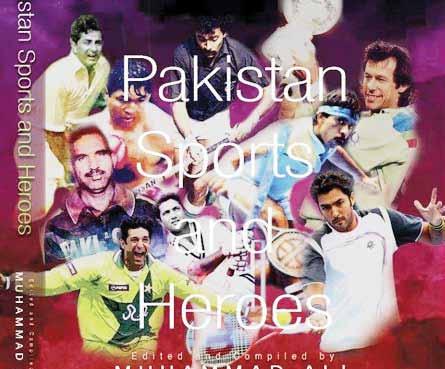
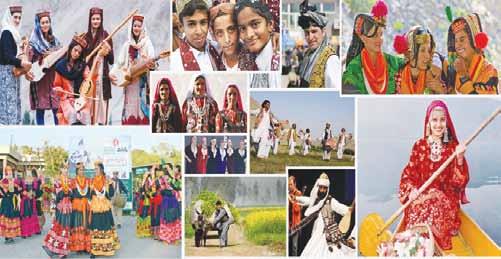
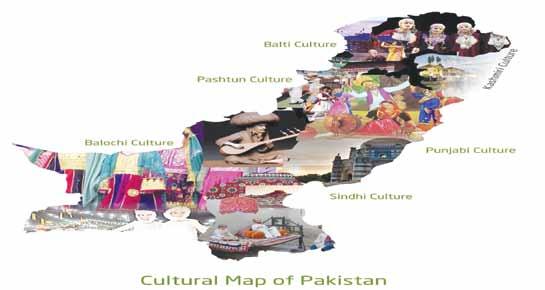
Art, Dresses & Culture
Cusines
textiles
Handicrafts
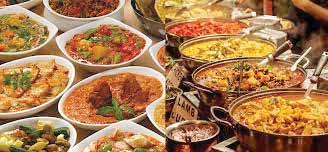

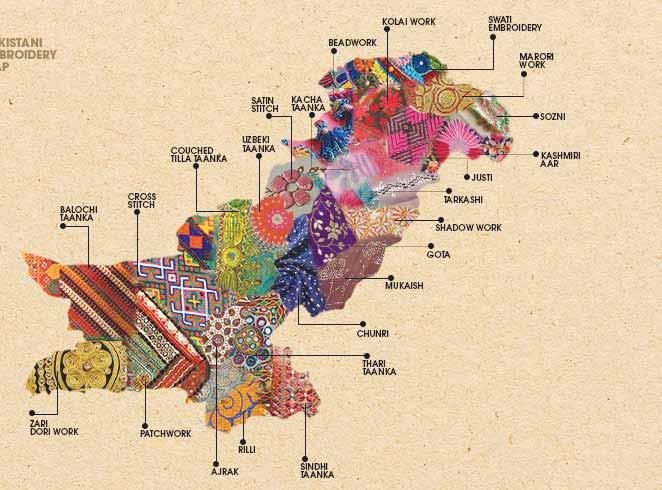
tourism

Muharrum 24,1445 August 11, 2023 13
Journey to P AK
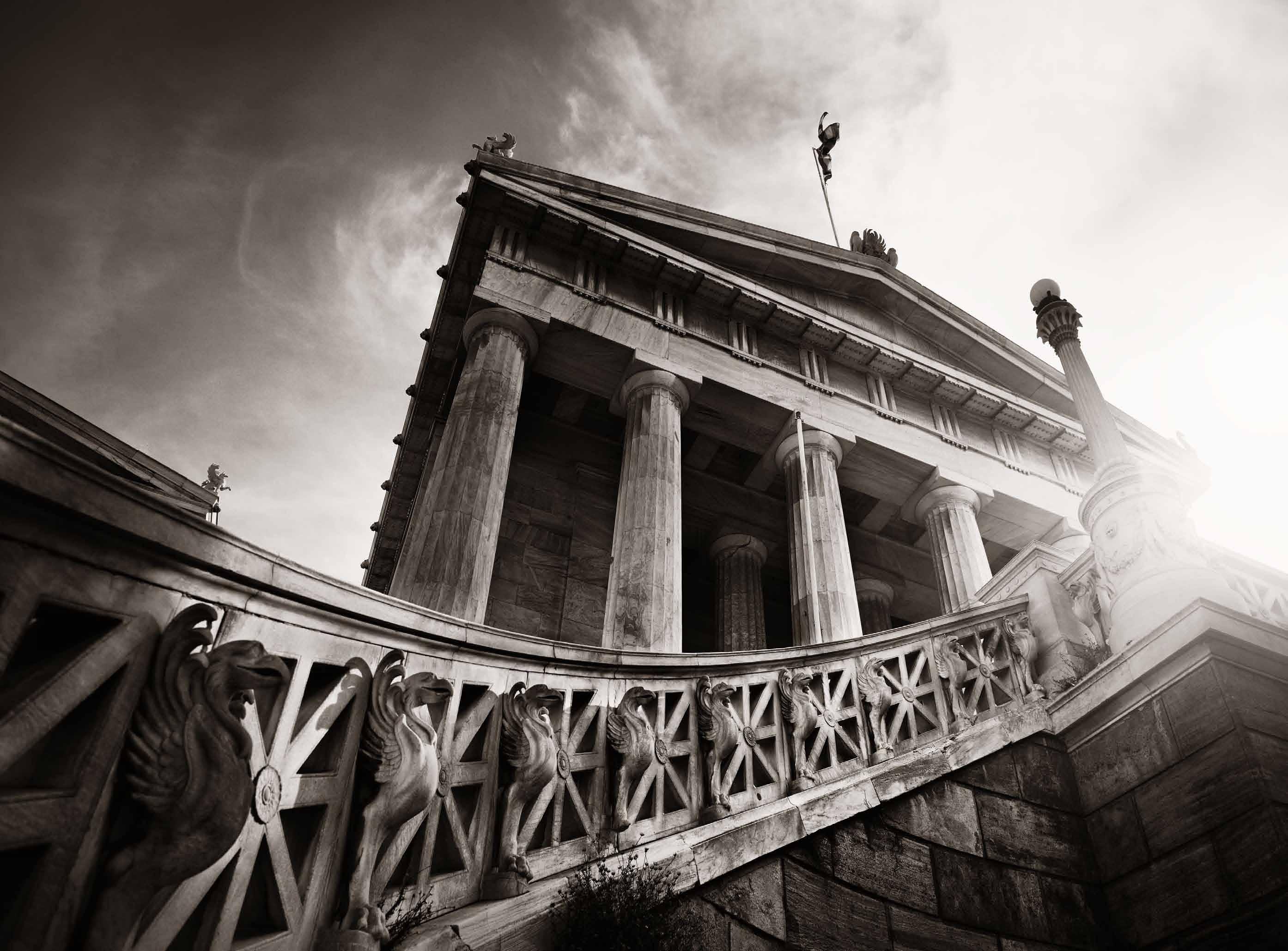
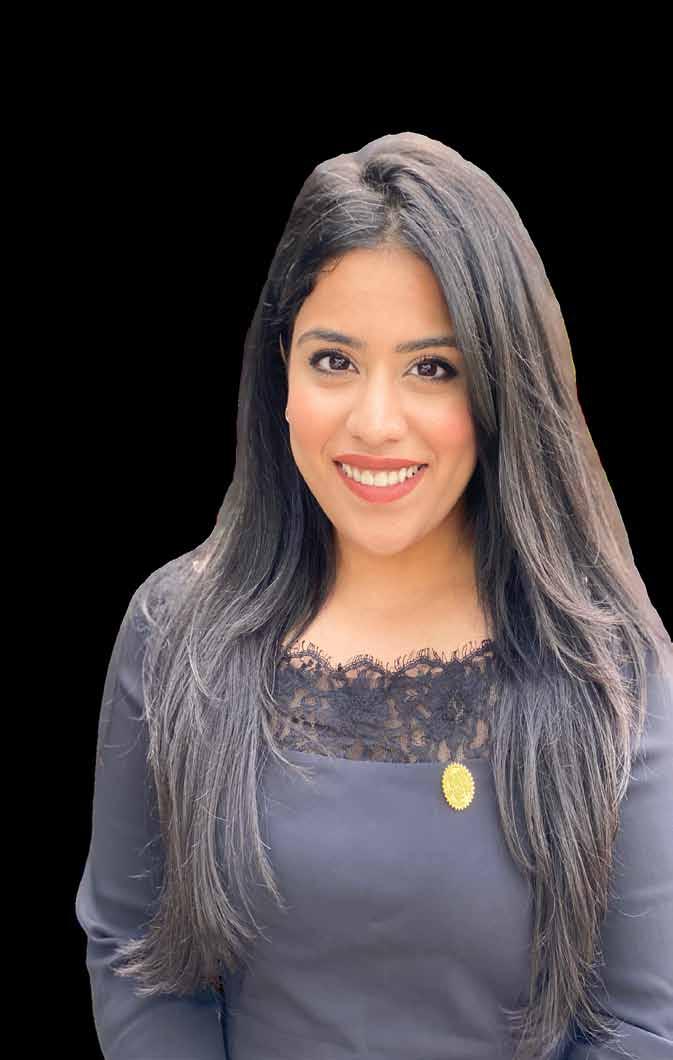
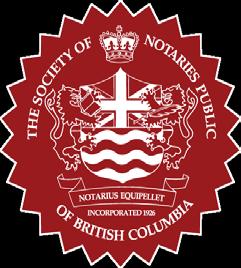


NOTARIZATIONS Certified true copies Affidavits Statutory Declarations Travel Consent Letters Insurance loss declarations Passport Applications Proof of Identity Notarization of Signatures Independent Legal Advice All other Forms and Documents AMEERA SHUMS NOTARY CORPORATION REAL ESTATE Purchasing a Home Selling a Home Refinancing/Mortgages Property Title Transfers Manufactured Homes Drafting Contracts Builder’s Liens Lease Agreements Covenants PERSONAL PLANNING Wills Power of Attorney Indian Power of Attorney Pakistan Power of Attorney Representation Agreements Advance Directives Free Consultations Flexible Office Hours Mobile Notary info@gvnotary.com 115- 13740 72A Avenue Surrey BC V3W 1N5 *Ad sponsored by Ayyaz Shums PREC and A2Z Team 604-449-7766 Muharrum 24,1445 August 11, 2023 14

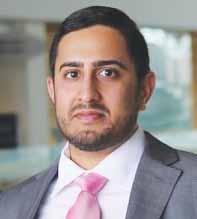
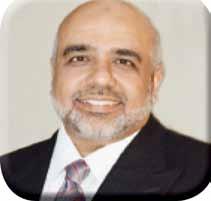
















Muharrum 24,1445 August 11, 2023 15 Sold Properties in 2023 604 -518 - 3782 adeeb.shums@century21.ca (Realtor) (Realtor) 604 - 839 - 7863 ayyazrealtor@gmail.com PREC A2Z Team Adeeb Shums $379,000 $1600,000 $620,000 $624 857 $1080,000 $1162,500 $700,000 $820,000 $575,000 $695,000 $647,500 $1450,000 $904,761 $703,900 2734 Fairview Crescent Prince George BC V2N 1G5 14377 84 Ave Surrey, BC V3W 0W3 514 3018 ST. George Street Port Moody BC V3H 0L4 6- 46040 Reece Avenue Chilliwack BC V2P3A5 7186 Elwood Dr Sardis , BC V2R 1G8 13812 65A Avenue Surrey BC V3W9R8 1203 958 Ridgeway Avenue Coquitlam BC V3K 0C5 103-15152 62A Avenue Surrey BC V3S1V1 805-4388 Buchanan Street Burnaby, BC V5C 6R8 160 2844 273 St Langley, BC V4W 3S6 13460 66A Avenue Surrey BC V3W 6M3 43 21555 Dewdney Trunk Rd, Maple Ridge BC V2X 3G6 46031 Riverside Drive Chilliwack, BC V2P 3K9 Pura #507 Surrey Central City, BC r2745890 r2750833 r 2760003 r 2760969 r 2785789 r 2760969 r 2757984 r 2270535 r 2795050 r 2766625 r 2799644 r 2772925 r 2802437 r2748278 Pre Sale Ayyaz Shums
Journey of Pakistan 1947-Apr 1988 (Importnant events/ News)

establish Regional Cooperation for Development.
November 26: President Ayub Khan inaugurates Pakistan Television Lahore Station.
1965 March 21: National Assembly elections held. Out of 150, Pakistan Muslim League wins 120 seats.
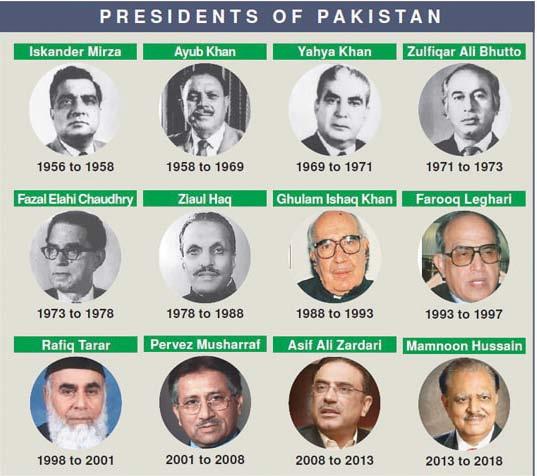
June 30: Pakistan and India sign accord on Rann of Kutch.
September 6: Second war between India and Pakistan over Kashmir.
September 23: A cease-fire between India and Pakistan comes into force.
Edited By: M.Naseer Pirzada
1947
June 3: British Government decides to separate British India, into two sovereign Dominions of India and Pakistan.
July 8: Constituent Assembly of Pakistan approves the design of Pakistan.
14 August Pakistan came into existence.
Sept 30: Pakistan becomes a member of the UN by a unanimous vote of the Sec Counc.
1948: January 1: UNO cease-fire orders to operate in Kashmir. War stops accordingly.
May 1: Indo-Pakistani War of 1947, Pakistan enters war on behalf of Kashmir against India.
1 July: Quaid-e-Azam inaugurated the State Bank of Pakistan.
July 9: Pakistan’s first postage stamp is issued.
September 11: Founding father of nation Quaid-e-Azam dies in Karachi due to stroke.
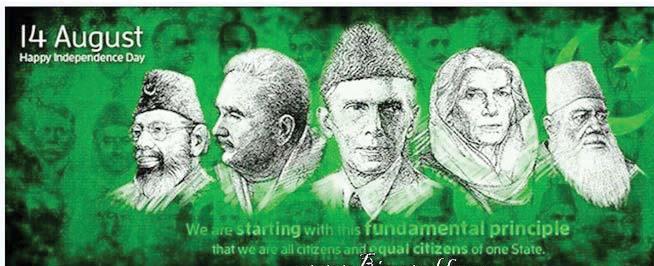
September 14: Khwaja Nazimuddin becomes Governor-General of Pakistan.
1949: January 1: United Nations Cease-fire Line established between Pakistani Kashmir and Indian-held Kashmir.
March 12: Objectives Resolution passed by Liaquat Ali khan
1950: January 4: Pakistan recognises the People’s Republic of China
September 6: General Mohammad Ayub Khan, the first Pakistani, is appointed C-inC of Pakistan Army.
1951October 16: Prime Minister Liaquat Ali Khan is assassinated at Rawalpindi.
October 17: Malik Ghulam Muhammad becomes Governor-General, Khwaja Nazimuddin assumes charge of Prime Minister.
1953: April 17: Muhammad Ali Bogra is sworn is as Prime Minister.
1954: April Urdu made National language
July 31: K2, the world’s second highest mountain, is conquered by an Italian expedition led by Professor session
Aug 7: Govt. of Pakistan approves the National Anthem, written by Hafeez Jalandhari and composed by Ahmed G. Chagla.
Aug 17: Pakistan defeats England by 24 runs at Oval during its maiden tour of England.
October 24: Ghulam Muhammad dissolved first constitutional assembly.
1955: January 1: Pakistan International Airlines(PIA) comes into being.
Aug 7: PM Mohammad Ali Bogra resigns after the election of Chaudhri Mohammad Ali.
1988-Aug 2019 (Importnant events/ News)
Bangladesh.
Feb 22: Islamic Summit Conference starts in Lahore; 22 heads of state participate.
September 7: Resolution passed about that Ahmadis and all groups of Ahmadis are Non-Muslim. Resolution made by Allama Shah Ahmed Noorani Siddiqui Ahle Sunnat Barelvi and leader.
1975 July 27: Council of Islamic Ideology recommends to abolish Riba and introduce Zakat.
1976: March 1: General Muhammad Zia-ulHaq becomes Chief of Army Staff.
Oct 6: Govern-General Ghulam Mohammad’s resignation is succeeded by Iskander Mirza.
1956: February 21: Constituent Assembly decides the country shall be a Federal Republic known as Islamic Republic of Pakistan.
May 14: PM Abiha Abdul Majeed presents the first five-year plan.
March 23: 1956 Constitution is promulgates on Pakistan Day. Major-General Iskander Mirza sworn in as first President of Pakistan.
Sep 12: Huseyn Shaheed Suhrawardy assumes office of appointed Prime Minister.
1957 Feb 2: President Iskandar Mirza laid down the foundation-stone of Guddu Barrage.
March 8: President Iskandar Mirza lays the foundation-stone of the State Bank of Pakistan building in Karachi.
July 11: Spiritual leader of Shia imami Ismaili Muslims and one of the founders of Muslim League and first president of All India Muslim League, Aga Khan, dies. Governor-Raj is lifted in W. Pakistan after 4 months.
July 24: Maulana Bhashani forms NAP
Dec 16: Malik Firoz Khan Noon is sworn in as seventh Prime Minister of Pakistan.
1958: Feb 14: Sardar Abdul Rab Nishtar, veteran leader of Pakistan Movement dies in Karachi.
October 7: Martial Law is declared throughout the country. General Ayub Khan is chief Martial Law Administrator.
October 27: Ayub forces Iskander Mirza to step down, General Ayub khan himself becomes President
November 2: Iskander Mirza is exiled.
1959: Oct 26: Basic Democracies by Ayub Khan
October 27: President General Ayub Khan becomes Field Marshal.
1960: Feb 24: Presidential Cabinet decides to name the new Capital as Islamabad.
Mar 23: Foundation of Minar-e-Pakistan is laid.
July 31: Foundation stone of Mazar-i-Quaid (Mausoleum of M.A. Jinnah) is laid.
September 9: Pakistan achieved its first Gold Medal in 1960 Olympics, defeating India in hockey by 1–0 at Rome.
1961: Jan 1: Decimal coinage introduced in Pakistan.
July 15: Jasmine is chosen as the national flower of Pakistan.
1962:June 8: 1962 Constitution is promulgated.
June 8: National Assembly elected and begins its first session. Ayub Khan takes oath of first President of Pakistan under new constitution.
1964 July 31: Pakistan, Iran and Turkey agree to
1966: January 10: Tashkent Declaration signed between India and Pakistan.
February 12: Sheikh Mujibur Rahman, chief of Awami League, announces his six points in Karachi.
Sep 17: General Yahya Khan becomes C-inC of Pakistan Army. General Musa Khan appointed Governor General of West Pakistan.
1967 July 9: Mohtarma Fatima Jinnah dies in Karachi.
November 26: Malik Amir Muhammad, Nawab of Kalabagh is shot dead.
December 1: Pakistan Peoples Party comes into being.
1968 Oct 26: Pakistan becomes Olympic hockey champion, winning over Australia 2–1.
1969 Mar 25: East Pakistan uprising forces Ayub Khan to resign and hand over power to Army Chief General Yahya Khan. Martial law is proclaimed and assemblies are dissolved.
Dec 1: 300 Class I gazetted officers, allegedly involved in corruption, are suspended.
1970 March 1: Air Marshal Asghar Khan forms new political party, Tehrik-i-Istaqlal.
April 6: First ordinance factory is inaugurated at Ghazipur.
July 1: One-unit of West Pakistan abolished, provinces restored.
Dec 7: First General elections held. Awami League and Pakistan People Party emerge as leading parties in East and West Pakistan.
December 19: Pakistan wins gold medal in 1971 January 30: An Indian Airlines aeroplane, hijacked by two Kashmiri separatists, lands at Lahore airport.
October 24: Pakistan wins World Hockey Cup defeating Spain 1–0 at Barcelona.
November 22: India launches full-scale attack on East Pakistan.
December 16: Dhaka falls and Bangladesh comes into being.
Dec 20: Gen. Yahya Khan hands over power to Z. A. Bhutto, who takes over as President and Chief Martial Law Administrator. East Pakistan become an independent country named Bangladesh
July 24: Lahore-Amritsar train service, Samjhota Express starts.
July 31: A.Q. Khan research laboratories established.
1977: January 10: Nine opposition parties form joint election forum, Pakistan National Alliance (PNA).
March 7: General elections are held in the country. PPP wins 155, PNA 35 seats out of 200.
July 1: Friday is announced weekly holiday, replacing Sunday.
July 5: General Zia-ul-Haq enforces Mar-
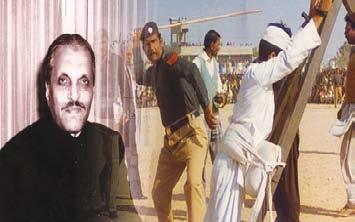
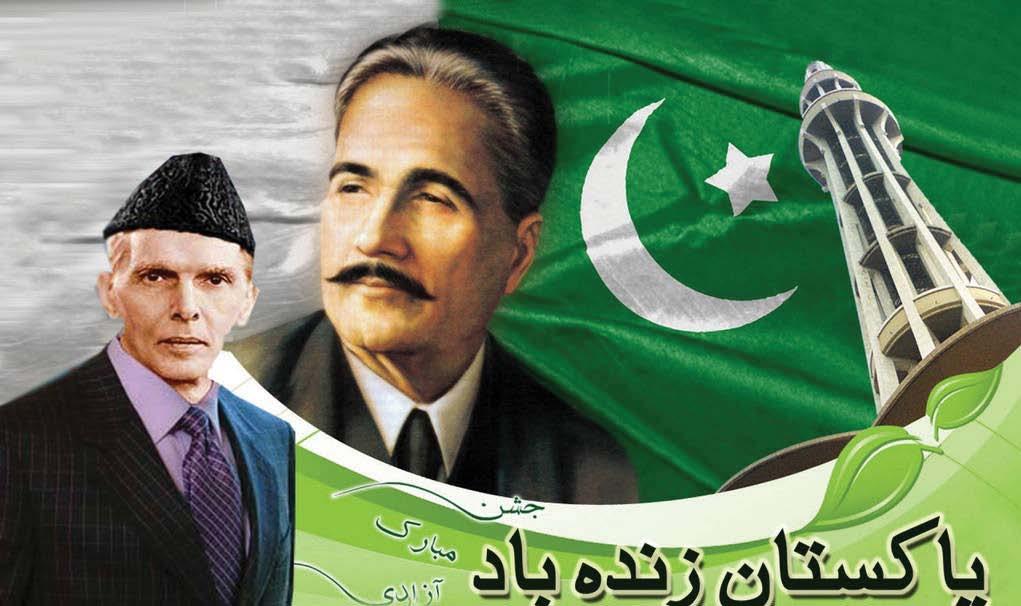
President.
December 31: Martial Law is lifted, amended 1973 Constitution revived.
1986 April 10: Benazir Bhutto returns to homeland.
1987 February 21: President Zia makes a surprise to India, met Premier Rajiv Gandhi.
October 15: Qazi Hussain Ahmed becomes Amir of Jamat-i-Islami.
Dec 18: Benezir Bhutto marries Asif Ali Zardari.
1988 April 10: Army ammunition blown up in Ojheri camp, Rawalpindi; more than 100 people died.
November 16: General elections held. PPP wins 92, IJI secures 54.
December 2: Benazir Bhutto is sworn in as first woman Prime Minister of Pakistan.
1989 May 26: ISI Chief Lt. Gen. Hameed Gul is replaced by Shamsur Rahman Kallu.
Oct 1: Pakistan rejoins Commonwealth.
1990 Feb 5: Kashmir Solidarity Day observed for the first time
August 6: President Ghulam Ishaq Khan dissolves National Assembly and dismisses Benazir Government. Ghulam Mustafa Jatoi becomes care-taker prime minister.
October 24: General elections held. IJI gets 104 and PDA wins 45 seats.
November 6: Nawaz Sharif elected Prime Minister, securing 153 votes.
1991 April 25: Jahangir Khan creates history by winning British Open Squash title for the record tenth consecutive time.
May 16: National Assembly adopts Shariat Bill.
tial Law. Constitution suspended; political activities banned.
September 17: Z. A. Bhutto arrested under Martial Law orders.
1978: February 1: Allama Iqbal’s Lahore house is declared national monument.
March 18: Lahore High Court awards death sentence to Bhutto along with four others.
June 11: Altaf Hussain forms All Pakistan Muhajir Students Organization (APMSO).
September 16: General Zia-ul-Haq is sworn in as President.
1979: April 4: Z. A. Bhutto hanged in Rawalpindi jail.
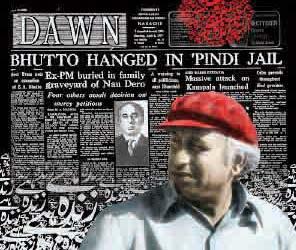
Oct 15: Dr. Abdus Salam, eminent Pakistani scientist, is awarded Physics Nobel Prize.
1980: May 26: Establishment of Federal Shariat Court is announced.
June21: Government starts collecting Zakat.
1981 Jan 1: Interest-free banking introduced.
January 3: International Islamic University starts functioning.
August 14: Nawaz Sharif lays foundationstone of Bab-i-Pakistan at Walton Lahore.
1992 January 12: Lahore-Islamabad Motorway project launched.
February 22: Nawaz Sharif introduces yellow-cab taxi scheme.
March 25: Pakistan wins Cricket World Cup, defeating England by 22 runs in Melbourne, Australia.
April 26: Pakistan’s Alam Channa enters Guinness Book of World Records as the tallest man in the world.
1993 April 18: President Ghulam Ishaq Khan dissolves National Assembly, dismisses Nawaz Sharif government. Balkh Sher Mazari becomes care-take prime minister.
May 26: Supreme Court restores National Assembly and Prime Minister Nawaz Sharif.
July 18: President Ghulam Ishaq Khan and Prime Minister Nawaz Sharif quit their offices.
October 6: General elections held. PPP wins 86; PML (N) secures 72 seats.
October 19: Benazir Bhutto is elected Prime Minister by 121 votes.
November 13: Farooq Laghari elected eighth President of Pakistan.
1996 April 25: Imran Khan launches new political party, Pakistan Tehrek-e-Insaf (PTI).
November 5: Farooq Ahmed Leghari dissolves National Assembly sacking Premier Benazir Bhutto. Malik Mairaj Khalid becomes care-taker prime minister.
pable short-range ballistic missile, Shaheen.
16 April: Pakistan won Coca-Cola Cup final at Sharjah crushing India by 8 wickets
July 26: Kargil War ends between Pakistan and India.
November 25: Nawaz Sharif returned Pakistan after 7 years of forced exile.
December 27: Bhutto, Benazir assassinated in a blast/bullet attack in Rawalpindi.
2008: Feb 18: Elections are held amidst tight security. PPP, PML-N, PML-Q and ANP win 124, 91, 54 and 13 seats respectively.
March 24: Yusuf Raza Gilani is elected as the new Prime Minister.
August 18: Pervaiz Musharraf steps down as President of Pakistan. Mohammadmian Soomro takes over as President.
September 6: Asif Zardari wins presidential election with 481 votes.
Oct 12: Nawaz Sharif is ousted from power and placed under house arrest after attempting to sack General Pervez Musharraf.
2000 April 6: Nawaz Sharif sentenced to life imprisonment on charges of hijacking and terrorism.
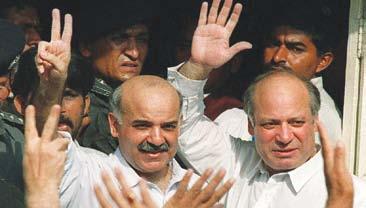
May 12: Supreme Court validated the October 1999 coup and granted General Pervez Musharraf executive and legislative authority for three years.
December 10: Nawaz Sharif along with
2009: 21 June: Pakistan vs Sri Lanka in Final. Pakistan won the ICC T20 Cricket World Cup in Lord’s London England. Pakistan won by 8 wickets.
2010: April 10: Pakistan adopts the 18th amendment to the Constitution, stripping President Asif Ali Zardari of key powers.
July 28: Crash of Airblue Flight 202, killed all 152 people on board.
October 1: Pervez Musharraf launches his new political party, the All Pakistan Muslim League, at a club in London.
2011 Jan 4: Salmaan Taseer, the governor of Punjab, is shot by one of his bodyguards near his home for opposing Blasphemy law in Pakistan.
May 2: The US Navy Seals killed Osama bin Laden in the city of Abbotabad.
2012: 22 June: Raja Pervaiz Ashraf is elected as Prime Minister of Pakistan, following the disqualification of Yousaf Raza Gillani
September 11: Over 314 people die in factory fires in Karachi and Lahore.
family, sent into exile in Saudi Arabia.
December 22: Famous singer, Noor Jahan dies in Karachi.
2001 June 21: General Pervez Musharraf assumes office of president while remaining Chief of Army Staff.

July 15: Agra Summit starts. President Pervez Musharraf and Indian Prime Minister Vajpayee holds talks over long-standing issues.
November 10: US President Bush meets President Musharraf in New York and assures additional aid of one billion dollar.
2002: April 30: Musharraf wins in a referendum.
Oct 10: General election held in the country.
November 23: Mir Zafarullah Khan Jamali sworn in as Prime Minister.
2003 Feb 24: Senate elections: Ruling party wins most seats in voting to the upper house.
June 24: President Pervez Musharraf meets G.W. Bush in Camp David. US announces $3-billion five-year economic assistance package for Pakistan.
July 11: Lahore-Delhi bus service resumed after suspension of 18 months.
2004 January 1: General Musharraf won a vote of confidence in the Senate, National Assembly, and provincial assemblies.
January 5: Musharraf meets Vajpayee in Islamabad, discusses Kashmir dispute.
December 6: PIA plane PK-661 crashed during flight killing 47 people including acclaimed former singer and religious scholar Junaid Jumshed and his wife.
2017 February 9: The second season of the Pakistan Super League began.
Feb 16: A suicide bombing at the Shrine of Lal Shahbaz Qalander in Sehwan, Pakistan resulted in the deaths of over 90 people.
June 18: Pakistan wins 2017 ICC Champions Trophy defeating India in the finals.
July 28: A unanimous verdict by the Supreme Court of Pakistan disqualifies PM Nawaz Sharif from office, over the controversy of him and some of his family members names being in the Panama Papers, thus leading to his disqualification for lifetime.
August 1: Shahid Khaqan Abbasi is sworn in as Prime Minister, succeeding Nawaz Sharif. 2018 March 3: - The 2018 elections to the Senate of Pakistan were held.
July 6:Former Prime Minister Nawaz Sharif, his daughter Maryam Nawaz and son-in-law Safdar Awan were given prison sentences of 10, 7 and 1 years respectfully on controversial corruption charges.
July 25: The 2018 Pakistani general elections were held.
August 17 -PTI leader Imran Khan took oath as (22nd)(without ignoring care takers) Prime Minister of Islamic republic of Pakistan.
September 4 - The 2018 Pakistani presidential election were held.
December 24: Former Minister Nawaz Sherief is sentenced to seven years
2013: January 10: A series of terrorist attacks killed more than 100 people in Quetta.
March 25: Mir Hazar Khan Khoso is appointed as caretaker Prime Minister of Pakistan, following the completion of the PPPled government’s term in office.
May 11: General Elections 2013 held June 5: Nawaz Sharif is elected Prime Minister of Pakistan, following the Pakistan Muslim League (N)’s victory in the 2013 general elections for the 3rd time.
July 30: Mamnoon Hussain is elected as the 12th President of Pakistan
September 24: A 7.7 magnitude earthquake hits BalOchistan, at least 825 people are killed and hundreds injured.
November 29: Pakistan Chief of Army Staff, General Ashfaq Parvez Kayani retires. General Raheel Sharif becomes the next COAS.
March 31: A Pakistani court charges former President Pervez Musharraf with high treason in relation to the imposition of the emergency rule in 2007.
May 21 Pakistan Air Force fighter jets bomb suspected militant hideouts in North Waziristan, killing approximately 60 militants and injuring another 30.
2019: Feb 27, Pakistan ‘captures Indian pilot after shooting down two jets in dogfight over Kashmir’Pakistan has claimed to have shot down two Indian jets and captured a pilot after a dogfight over Kashmir, igniting fears of an all-out conflict between the nuclear-armed neighbours.
May 7, Nawaz Sharif to go back to jail as bail expires Pakistan’s former Prime Minister Nawaz Sharif will return to jail later on Tuesday following the expiry of his six-week bail in a corruption case.
June 10:, Former Pakistan President Asif Ali Zardari arrested in fake bank accounts case. Pakistan’s most powerful opposition leader arrested after bail rejection in bogus accounts
July 2: MNA Rana Sanaullah sent to jail on 14-day judicial remand
July 3: The IMF Takeover of Pakistan the International Monetary Fund approved a $6 billion bailout package to help “return sustainable growth” to Pakistan’s economy.
July 17: ICJ rejects India’s plea for Jadhav’s return, grants consular access “Delhi defeated. ICJ knocks out India’s major demands about Kulbhushan Jadhav on his release and annulment of sentence.”
1972 Jan 30: Pakistan snaps ties with Commonwealth on recognizing Bangladesh.
April 14: First session of National Assembly. Bhutto elected President.
April 21: Martial Law lifted; constitutional rule is restored in the country.
July 2: Simla Agreement is signed between President Bhutto and PM Indira Gandhi.
October 28: President Bhutto inaugurates Karachi Nuclear Power Plant (KANUPP).
1973 April 10: 1973 Constitution of Pakistan enacted by the National Assembly.
August 11: Chaudhry Fazal Ilahi is elected as President.
August 14: Constitution of Pakistan 1973 promulgated
August 28: Return of Pakistan POWs (prisoners of war) accord signed in New Delhi.
1974 Feb 21: Pakistan recognizes
March 2: A PIA Boeing 720 with 148 passengers hijacked to Kabul.
Aug 31: Pakistan Steel Mills starts functioning.
1982: January 3: Pakistan defeats Germany
3–1 in World Cup Hockey in Bombay.
January 11: General Zia-ul-Haq inaugurates first session of Federal Council (Shoora) in Islamabad.
December 21: Writer of Pakistan’s national anthem, Hafeez Jalandhari dies.
1983 Jan 15: First three F-16 jets reach Pakistan.
March 11: Nuclear tests: Kirana-I is carried out. The tests are not announced until 2000.
1984:March 18: Altaf Hussain forms MQM.
April 27: Ban imposed on use of Islamic nomenclature by Ahmadis.
December 19: General Zia-ul-Haq holds presidential referendum.
1985 Feb 25: Partyless national elections held.
March 23: Muhammad Khan Junejo sworn in as Prime Minister and General Zia as
1997: Jan 29: Supreme Court upholds President’s proclamation dissolving the National Assembly and dismissing Benazir Government.
February 3: Nation goes to the polls. PML secures 135 seats.
February 17: Nawaz Sharif sworn in as 19th Prime Minister.
Feb 23: Nawaz Sharif launches “Qarz utaro Mulk sanwaro”. He declared Sunday as a public holiday and convert Friday into half day.
May 21: Saeed Anwar slams world record score of 194 runs against India.
August 16: Noted Pakistani singer, Nusrat
Fateh Ali Khan died at the age of 49.
1998 January 1: Rafiq Tarrar is sworn in as President of Pakistan
May 28: Pakistan conducts nuclear tests in Chagai hills in Balochistan.
1999 February 21: Lahore Declaration is signed by Nawaz Sharif and A. B. Vajpayee.
April 15: Pakistan conducts test of a nuclear-ca-
June 26: Prime Minister Zafarullah Khan Jamali steps down and nominates Ch. Shujaat Hussain as his interim successor.
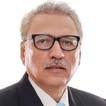
Aug 28: Shaukat Aziz becomes Prime Minister.
2005 July 13: 136 people killed and about 170 injured in a collision of three passenger trains near Ghotki.
Oct 8: A devastating earthquake in Kashmir and NWFP kills over 80 thousands people.
2006 May 14: Charter of democracy (CoD) is signed by two former prime ministers of Pakistan, Nawaz Sharif and Benazir Bhutto in London.
April 26: Pervez Musharraf lays foundationstone of Diamir-Bhasha dam.
2007 March 9: President Musharraf dismissed Chief Justice of Pakistan, Iftikhar.
July 20: Iftikhar restored as Chief Justice October 18: Bhutto, Benazir returned to Pakistan, after exile of about 8 years.
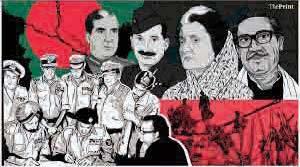
November 3: Pervez Musharraf imposed emergency, most of the senior judges of Supreme Court ousted.

October 10: Activist Malala Yousafzai becomes the first Pakistani to win the Nobel Peace Prize for her struggle to voice girls’ right to education.
December 16: Taliban gunmen storm a military-run Army Public Schools massacre in Peshawar, killing at least 141, including 132 children and nine employees, with most of five hundred students evacuated. The shooting ends with all seven gunmen dead.
2016: Feb 4: First season Pakistan Super League
June 22: Musician Amjad Sabri is killed in a targeted shooting.
Jul 18: Former Pakistani PM Abbasi arrested on corruption charges
July 25:Was Pakistan PM Imran Khan’s visit to the US a success? Pakistani Prime Minister Imran Khan returned from a three-day visit to the United States to the Pakistani August 8: Maryam Nawaz: Pakistan’s leader of the opposition arrested, Maryam Nawaz arrested while visiting her father, the jailed former Prime Minister Nawaz Sharif.
To be Continued at page 17
2022 Game Changers
17 Muharram 24,1445 August 11 ,2023 Muharram 24,1445 August 11 ,2023 16 2023 MIRACLE’S SPECIAL
2018-update
Dr. Arif Alvi
Pakistani Community protesting for Imran Khan agist unjustified and illegal arrest ,, PTI Vancouver BC Chapter Canada
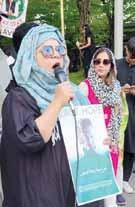
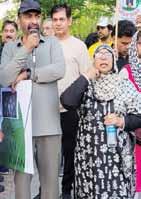
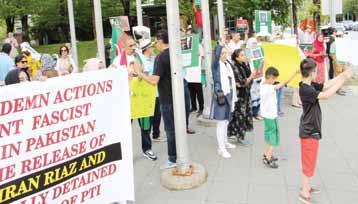
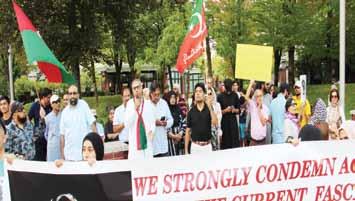
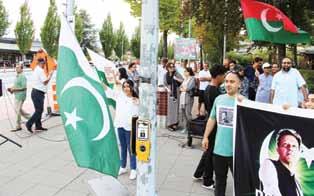
Canadian Muslim Media Club (CMMC) Holds an Open Discussion at the arrest of former Prime Minister Imran Khan
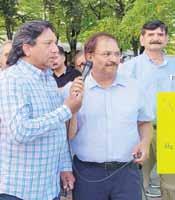


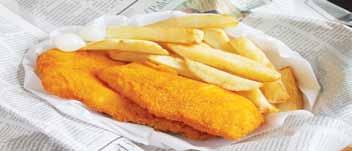

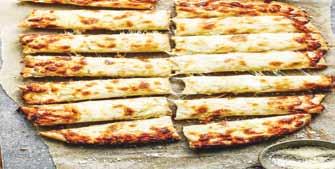

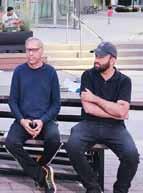




On August 5th, the Canadian Muslim Media Club (CMMC) hosted a live stream to address at Surrey Foyer City Hall for the ongoing political situation in Pakistan. The CMMC believes that open discussion is essential, as it directly impacts the Pakistani diaspora. The CMMC invited many community members to participate in this discussion. President Naseer Pirzada opened the floor and said that in this week many issues happening including Black Day of Kashmir August 5, Justin Trudeau and Sophie’s separation and the conviction of Imran Khan, after that Tarik Kiyani conducted. The further proceedings participated by Naveed Waraich, Tariq Yaqub, Ali Abrar, Nayair Sohail, Anila Shoaib, Sajid Hameed, Sajid Hameed, Salman and Nadeem Zia. On August 6th, the Pakistan Tehreek Insaf(PTI) BC chapter protested at Scott Road x 72 Ave. Surrey, in which many local PTI’s activists addressed at the convication of former Prime Minister Imran Khan.

Muharrum 24,1445 August 11, 2023 18
Cheesy Bread Stick Fish & Chips 1 lb(Basa)$12.99 1 lb(Cod)$14.99 1Cod $8.49 1Cod with 1 fries $13.99 2Cod with1 fries $19.99 3Cod with1 fries $27.99 Small $8.99 Medium $11.99 Large $13.99 Fish Pakora $9.99+Tax $9.99+Tax $10.49+Tax $53.99+Tax $12.99+Tax $ 28.99 $ 8.49 $ 13.99 $ 10.49 $ 16.49 $ 6.99 $ 11.99 $ 13.99 $ 13.99 $ 22.99 Business Hours: Mon: 11am: 10pm Tuesday Closed Wed-Sat-11- 10pm Sun & Holdidays Noon to 9pm lo CA l e V ent S


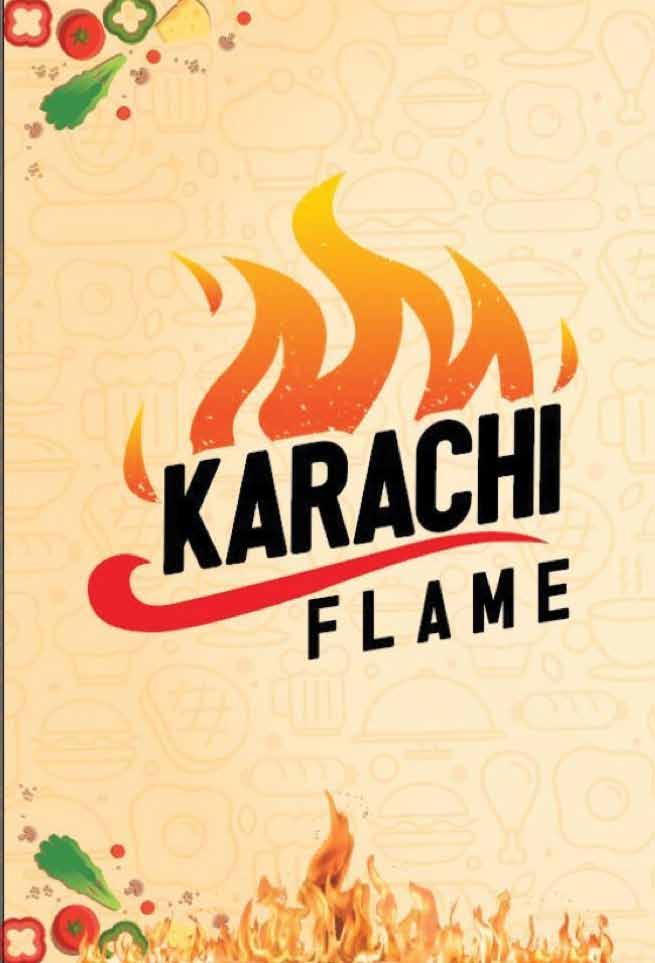


19 Muharrum 24,1445 August 11, 2023 Serving Karachi’s Flavours One bite at a time! At Unit 203-7750-128th Street, Surrey Ph: 778-922-3338 Under the Management of 777 Pizza FromAugust11,2023
Continued from page 17
2019: August 11: Worst shelling in over a decade, claim Locals at LoC. Locals claim that it was a war-like situation and they had not seen this kind of escalation and heavy artillery firing for over a decade.
August 11: Kashmir tensions spill over to Britain’s Pakistani and Indian communities Ever since thousands of troops placed Indian-administered Kashmir in lockdown, Sohail Nasti has been sitting in the living room of his north London home frantically trying to communicate with his family.
October 28-Nov: The 2019 Azadi march is an ongoing protest march led by Maulana Fazl-ur-Rehman of Jamiat Ulema-e-Islam (F) in Islamabad, Pakistan from 28 October 2019. The march opposes Prime Minister Imran Khan, demanding his resignation,and new elections.No women were part of the protests. The protest involved tens of thousands of protesters.
October 31: Pakistan Railways’ Tezgam passenger train caught fire while traveling from Karachi to Rawalpindi, resulting in at least 75 passenger deaths. The train accident was the deadliest in Pakistan since 2005, when the Ghotki rail crash killed more than 100 people Dec 11: Punjab Institute of Cardiology
Aug 7: NAB summons Buzdar over liquor licence ‘bribe’.
Source: https://en.wikipedia.org/ AUG-2020
August At least 39 people were injured in an RGD-1 grenade attack on a Jamaat-i-Islami rally in the Gulshan-e-Iqbal neighborhood of Karachi. The Sindhudesh Revolutionary Army claimed responsibility for the attack.
10 Sep: PM Pakistan Launches “Roshan Digital Account” For Overseas Pakistanis.
20 Oct - Pakistan after 10 days hiatus, Pakistan banned TikTok.
28 Oct: Federal Board of Revenue (FBR) sealed cellular Sim company Jazz head office after


were two bombing attacks in Chaman, Balochistan, Pakistan, that occurred on 24 March and 21 May. These attacks left 9 people dead and another 27 injured.
April 11: The 2021 Pakistani protests was
(PIC), located in Lahore, Pakistan, is a 347bed tertiary care hospital providing nationwide comprehensive cardiac care services.
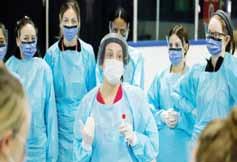
Dec 17: Musharraf high treason case
The Supreme Court of Pakistan , a special court declared him a traitor and sentenced him in absentia to death for abrogating and suspending the constitution in November 2007.The three-member panel of the special court which issued the order was spearheaded by Chief Justice of the Peshawar High Court Waqar Ahmed Seth 2020:
February 1 Pakistan locust infestation - the government declared a national emergency to protect crops and help farmers
February 26: The first two cases of
they did not pay 25 billions rupees in 2018.
31 Dec: The Samadhi of Shri Paramhans Ji Maharaj, a revered Hindu saint and the Krishna Dwara temple situated in the Teri village in the Karak District of Khyber Pakhtunkhwa province of Pakistan was attacked and burned, by a mob of 1,500 local Muslims led by a local Islamic cleric and the supporters of Jamiat Ulema-e-Islam party.
Source: en.wikipedia.org/wiki/2020_in_
Pakistan#January
2021
Jan 5: The Supreme Court ordered that the Shri Paramhans Ji Maharaj Samadhi temple in Teri, Karak District, be rebuilt by the government after it was destroyed by a mob in December 2020.

Jan 9: A massive blackout strikes Pakistan, leaving as much as 90 percent of the country without electricity at its height as officials rush to restore power.

a series of protests and strikes in Pakistan from 11–20 April 2021. Mass protests first erupted after a series of calls for nationwide rallies and picketing against the government of Prime Minister Imran Khan and his cabinet, orchestrated by banned far-right party Tehreek-e-Labaik Pakistan (TLP)

Happy 76th Independence Day

COVID-19 are reported in Pakistan.
March 8: The Aurat (Women) March is an annual political demonstration organized in various cities of Pakistan.

May 22: Pakistan International Airlines Flight 8303 crashed in Karachi killing 97 of the 99 people on board as well as one on the ground.
June 19:The Supreme Court of Pakistan has quashed a presidential reference filed against Justice Qazi Faiz Esa.
June 30: Nigar Johar becomes Pakistan Army’s first female lieutenant general.
July 06: PM Imran Khan inaugurates country’s first ever indigenously made ventilators at National Radio and Telecommunication Corporation (NRTC) in Haripur.
July 15: ‘Will build biggest dam in Pakistan’s history’: PM Imran kicks off construction work at Diamer-Bhasha Dam.
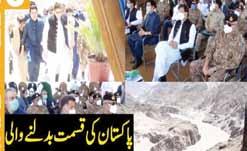
July 26: Pakistan Army downs this year’s 10th Indianspying quadcopter: ISPR
January 28 – A Malaysian court ordered the immediate release of Pakistan International Airlines (PIA) plane which was seized on 15 January, at the Kuala Lumpur International Airport, over a lease dispute.
Feb 22:The Ippi shooting was a mass shooting in which two gunmen shot dead four female aid workers. The attack occurred on 22 Feb in Ippi village, North Waziristan, Khyber Pakhtunkhwa, Pakistan.
March 24: The 2021 Chaman bombings
May 31: The 2021 Balochistan attacks were two attacks in Balochistan, Pakistan. These attacks left 4 soldiers and 4 insurgents dead. 2 soldiers were wounded.
June 7: Two trains collided near Daharki, in the Ghotki District of the southern province of Sindh in Pakistan, killing at least 65 people and injuring about 150 others.
21 July: Three boats sank on the first day of Eid-ul-Adha in the Raghagan Dam in Bajaur, killing four people and leaving 20 missing.
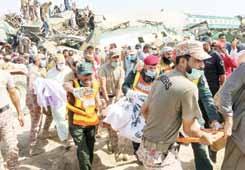
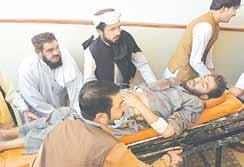
6 Aug: PM Imran given demo of Pakmade electronic voting machine
With continuous support and encouragement from both within and outside of Canada, The Miracle team feels proud to launch another edition on the occasion of the 76th Independence Day of Pakistan and India. I would take the opportunity to thank the supporters and well wishers of “The Miracle’ for providing continuous support through advertisements of their businesses, sharing their thoughts in writing with our readers. Keep up the good work not only for the Miracle but for all. We are proudly continuing our thirteen years old tradition of Azadi editions. As Pakistani Canadians, we not only have the responsibility of being faithful and loyal to Canada but also represent our distinct cultural identity in a positive manner. Be part of the upcoming Canadian Provincial & Federal Elections.

ISLAMABAD: Prime Minister Imran Khan on Thursday received a detailed presentation and a demonstration of a new locally-made electronic voting machine (EVM).
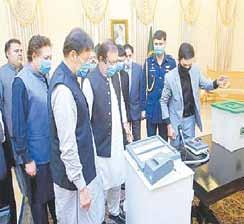
6 Aug: UK govt rejects Nawaz Sharif’s visa extension plea UK govt rejects Nawaz Sharif’s visa extension plea (ANI): Former Pakistan prime minister Nawaz Sharif’s request for an extension in his visit visa has been rejected by the UK government, Geo News reported on Thursday.
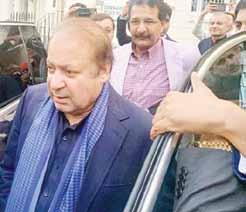
I am very proud that I am a Muslim and Pakistani Canadian, and it is my duty to promote not only Canadian values but also our Pakistani businessmen community, which is serving Canadians day and night. I have high respect for these people who contribute to the economic prosperity of Canada and are also equipping their future generations with high education and skills to serve this country and make it stronger and more prosperous. In the end, I once again request to all Pakistani Canadians be proud of their Pakistani origin, and live here with peace and dignity as Ambassadors. Promote Pakistani businesses and their products and make your contribution in benefiting both Canadian and Pakistani economies. Feel free to comment on this issue as your concerns and suggestions are highly appreciated for improving our quality in the future. United we stand, divided we fall.
Long Live Pakistan and Long Live Canada.
Jazakum Allah khair
M. Naseer Pirzada (Editor in Chief Miracle Media)
20
Journey of Pakistan-Aug 2019 -Aug 2021 (Importnant news) Continued at page 21 Muharrum 24,1445 August 11, 2023 Journey to P AK
Journey of Pakistan-Aug 2021 -Aug 2023 (Importnant news)
Continued from page 20
2021: 8 August - Pakistan at the 2021 Islamic Solidarity Games
9 August - August 2021 Quetta bombing
12 August - Pakistan Ordnance Factories explosion
14 August - Karachi grenade attack
17 August - Vandalism of Maharaja Ranjeet
Singh’s statue in Lahore
20 August - Gwadar suicide attack
26 August - August 2021 Balochistan attacks
5 September - 2021 Quetta suicide attack
7 October - 2021 Balochistan earthquake
22 October - October 2021 Tehreek-e-Labbaik Pakistan protests
3 November - Azad Kashmir bus incident
8 November - West Indies women’s cricket team in Pakistan in 2021–22
28 November - Charsadda arson attack
3 December,Lynching of Priyantha Kumara
17 December - Eighth Extraordinary Session of the Islamic Summit Conference
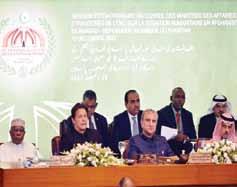

funding case.
Aug 3: PTI received ‘prohibited’ funds, ECP rules
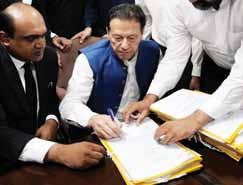
The 2022 Census of Pakistan
• Millions of dollars received from 351 foreign companies, 34 nationals, commission holds
9 August – Pakistan at the 2021 Islamic Solidarity Games
13 August – 2022 Kashmir Premier League
14 August-Celebrations of Pakistan

platinum (75th) Independence Day.
2021–22 Pakistan Premier League
16 August M-5 motorway bus-oil tanker collision
28 August –Pakistan at the 2022 Asia Cup
2022 Karachi local elections
30 August – 2022–23 National T20 Cup
13 September – 2022 Swat blast
20 September – English cricket team in Pakistan in 2022–23
24 September – Pakistani audio leaks controversy
27 Sept 2022–23 Quaid-e-Azam Trophy
Malakand, Azad Kashmir, and other areas.
9 January – The Government of Pakistan and the United Nations co-hosted one-day International Conference on Climate Resilient Pakistan in Geneva, Switzerland to aid Pakistani people after the devastating floods in 2022. Under the presidency of Shehbaz Sharif, the Prime Minister of Pakistan, and Antonio Guterres, the Secretary-General of the United Nations, Pakistan raised more than $10 billion for recovery and rehabilitation process in flood effecting areas.
9/10 January – Death of Yahya
13 January – Sarband police station attack in Peshawar, Khyber Pakhtunkhwa.
14 January – Pervaiz Elahi, the Chief Minister of Punjab had dissolved the 17th Provincial Assembly of the Punjab.
15 January – Polling for the second phase of Sindh local government elections were held in the 16 districts of Karachi and Hyderabad.
18 January – Mehmood Khan, the Chief Minister of Khyber Pakhtunkhwa had dissolved the 11th Provincial Assembly of Khyber Pakhtunkhwa.
19 January – Three police officers are killed in a suicide bombing at a police outpost in Khyber Pakhtunkhwa.
20 January – A bomb blast derails a passenger train in Peshi village, Kachhi District, Balochistan, injuring eight people.
several others are injured when a bus collides with a van in Rahim Yar Khan, Punjab.
26 February – Four people are killed and 14 others are injured in a bombing at a market in Barkhan, Balochistan.
3 March – Harnai coal mine explosion
6 March – At least nine police officers are killed and 16 other people are injured in Sibi, Pakistan, when a suicide bomber riding on a bike strikes a police vehicle.
20 March – Haripur rocket attack
21 March – 2023 Afghanistan–Pakistan earthquake, Parts of Afghanistan and Pakistan were hit by a strong earthquake measuring 6.8 on the Richter scale, resulting in casualties and property damage. At least 11 people died in Pakistan, and a total of ten deaths were reported in Afghanistan and Pakistan combined as a result of the earthquake.
30 March –Four people are killed and six others are injured by two roadside bombings targeting police in Lakki Marwat, Khyber Pakhtunkhwa.
The Lahore High Court rules that Pakistan’s sedition law is unconstitutional, on the grounds that it violates free speech.
31 March – 2023 Pakistan ration distribution stampedes: Eleven people die after being crushed in a crowd which gathered to collect food outside a factory in Karachi.
19 December, Khyber Pakhtunkhwa local elections.
2022: Jan 8: At least 22 people, including 10 children, died in a popular mountain resort town in Pakistan after being stuck in their vehicles overnight during a heavy snowstorm as temperatures plummeted, officials said Saturday.
Aug 8: Pakistan’s trade with ASEAN topped $11b in 2022
Feb 28: Bilawal kick-starts march to dislodge PM Imran
March 31: The government confirmed on Wednesday that its allegation about a foreign conspiracy against the prime minister was based on a diplomatic cable received from one of the country’s missions abroad.
April 9: Hafiz Saeed sentenced to 33 years
April 9: Expressing his disappointment with the Supreme Court’s decision that revived the no-confidence motion against him, Prime Minister Imran Khan issued a lastditch call to the nation’s youth to take to the streets on Sunday night against what he termed an “imported government”,
Apri 11: Shehbaz made premier as ‘opposition’ forms govt
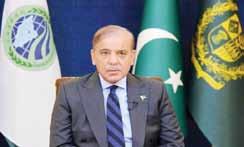
6 October – 2022 Pakistan Junior League
9 October – The Centaurus mall fire
10 October – 2022 Swat school van attack
13 October – Abandoned bodies incident in Nishtar Hospital
14 October – Pakistan won the New Zealand Tri-Nation Series.
16 October – 2022 Pakistan by-elections
28 October – 2022 Azadi March-II
28 October – Machar colony incident
3 November - Attempted assassination of Imran Khan
4 November - Ireland women’s cricket team in Pakistan in 2022–23
6 November - 2022 Ghotki attack
16 November - 2022 Lakki Marwat attack
27 November - 2022 AJK local gov .Elec
30 November - Quetta bombing
10 December - 2022–23 Pakistan Cup
23 December- 2022 Islamabad suicide attack
26 December - New Zealand cricket team in Pakistan in 2022–23 (December 2022)
31 December - 2022 Islamabad local government elections https://en.wikipedia.org/wiki/2022_in_
Pakistan#January 2023:
2 January – New Zealand tour to Pakistan
3 January –Two intelligence officers, including the director of the provincial counterterrorism department, are shot dead outside a restaurant in Khanewal, Punjab, by suspected Pakistani Taliban gunmen.
May 20: In the US, Bilawal defends
Imran’s Moscow visit
May 27: New govt pays a big price to placate IMF
May 27: Imran ends long march ‘short of D-Chowk’
June 3: Imran’s narrative spurned by opponents
July 27: SC voids Hamza election, Elahi is the new CM
July 31: Shehbaz visits flood-hit Balochistan as dozens die across the country
Aug: 2: Pakistan Army helicopter crashed with 6 senior officers in Balochistan
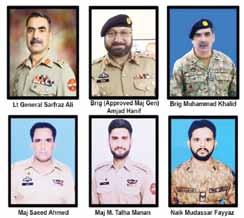
Aug 10: Conspiracy being hatched to pit
PTI against army: Imran
2 August – The Election Commission of Pakistan announced verdict of PTI foreign
The government orders the closure of all shopping malls and retail markets by 8:30 p.m. (PKT) daily as part of an energy conservation plan to offset increasing energy prices.
5 January – Pakistan was shaken by a 5.8-magnitude earthquake, according to the National Seismic Monitoring Center, and the tremors were felt in Gilgit, Jhelum, Chakwal, Pakpattan, Lakki Marwat, Nowshera,
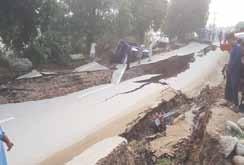
23 January – A major power outage in Pakistan leaves nearly 220 million people without electricity after a failure at the national power grid. Earlier this month, Shehbaz Sharif had ordered a reduction of energy consumption as the country faces a severe energy crisis.
27 January – It is announced that at least 18 people have been killed in the past two weeks by toxic chemicals from factories in Karachi, Sindh.
29 January –2023 Lasbela bus crash: At least 41 people are killed and two others are injured when a bus plunges off a bridge and bursts into flames in Lasbela District, Balochistan.
Tanda Dam boat disaster: Fifty one people are killed when their boat capsizes in Tanda Dam, Kohat District, Khyber Pakhtunkhwa.
30 January – 2023 Peshawar mosque bombing: At least 100+ people are killed and 170 others are injured when a Jamaat-ul-Ahrar suicide bomber detonates his explosive vest in a mosque in Peshawar.
3 February – At least seventeen people are killed when a bus and a truck crash in a head-on collision in Kohat District, Khyber Pakhtunkhwa.
6 February – Pakistani Prime Minister Shehbaz Sharif orders the ban on Wikipedia to be lifted, three days after the website was banned for alleged anti-Muslim and blasphemous content.
10 February – Two people are killed and three others are injured when a roadside bomb hits a vehicle in Kohlu District, Balochistan.
13 February – 2023 Pakistan Super League
13 February – Lynching of Waris: Police in Punjab, arrest 50 men for the lynching of a blasphemy suspect at a police station in Nankana Sahib District two days ago.
14 February – Three Pakistani Taliban members are killed by fellow militants who were trying to free them while being transported from Miranshah to Bannu, Pakistan by counter-terrorism officers. Four of the attackers are also killed in the ensuing shootout.
20 February – 2023 Kallar Kahar bus accident: Fourteen people are killed and 63 others are injured when a bus crashes and overturns near Kallar Kahar, Chakwal District, Punjab.
20 February – 2023 Barkhan incident
22 February – Jail Bharo Tehreek
25 February – Thirteen people are killed and
7 April - Pakistan arrests the founder of the Baloch Nationalist Army in the country’s southwest.
7 April - 2023 Yar Hussain grenade attack
8 April - 2023 Khyber blast: an improvised explosive device (IED) struck a security forces vehicle, which resulted in the deaths of two soldiers and injury to 4 others in Pakistan’s Khyber District.
9 April - Kacha Operation.
12 April - 2023 Karachi factory fire
18 April - 2023 Torkham landslide: a landslide near Torkham on the Afghanistan-Pakistan border kills at least three people.
24 April - 2023 Kabal explosions
27 April - 2023 Karachi Express train fire
4 May - Parachinar school shooting
9 May - Arrest of Imran Khan
9 May , Khan’s protesters burned jinnah house lahore corps commander house

15 May - 2023 PDM sit-in
18 May - 2023 Peshawar blast
19 May - 2023 Zhob suicide attack
27 May - 2023 Astore avalanche
10 Jun - 2023 Khyber Pakhtunkhwa
rains and storms
7 July – 2023 Shandur Polo Festival
20 July – 2023 Bara explosion
Predicted and scheduled
5 August- Imran Khan convicted for 3 years sentanced and disqualified for 5 years.
Source: https://en.wikipedia.org/wiki/2023 _in_Pakistan#January
21
August
2023
Muharrum 24,1445
11,
Journey to P AK
What is CPEC ?
1. Restructuration of Pakistan

2. Infrastructural Projects of CPEC
3. Game Changer for Pakistan
4. Industrial and Technological 0
5. Revolution
6. CPEC`S Special Economic Zones
7. Employment Opportunities
8. Regional Cooperation
9. Gwadar Port
10. Pak-China friendship
People are finding information about China Pakistan Economic Corridor essay because this is one of the most important developments in Pakistan with the help of China. Every year Pakistan earns millions of dollars. Further, the importance of China Pakistan Economic Corridor is given below.
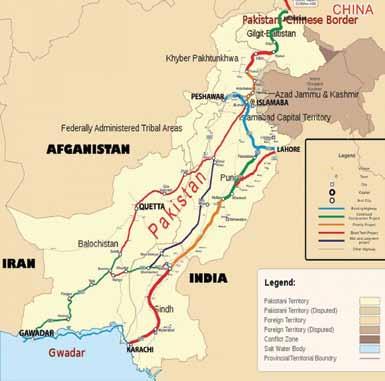
China Pakistan economic Corridor
What is CPEC?
The China-Pakistan Economic Corridor (CPEC) is a project to improve infrastructure within Pakistan in order to improve trade with China and further integrate with the countries within the region of Central Asia. It is a major bilateral initiative that will raise the level of living for Chinese and Pakistani citizens. In order to advance bilateral ties, China and Pakistan decided to collaborate on initiatives like agricultural systems and poverty reduction.
Infrastructural Projects of CPEC
CPEC project is a collection of infrastructure projects. It is a massive bilateral project that was signed between China and Pakistan on April 20, 2015. This project includes 51 signed agreements and is valued $46 billion which has reached $62 billion in recent years. CPEC is part of the larger Belt and Road Initiative that was announced by China in 2013. As its name suggests “Economic Corridor” it is to improve connectivity, trade, communication, and cooperation between Eurasia. This framework will not only benefit Pakistan and China but will impact Iran, Afghanistan, India, Central Asian Republics, and the Region positively. It will be a game-changer for Pakistan, China, and the Whole Region.
Game Changer for Pakistan
CPEC will benefit Pakistan the most in the future as Pakistan is a developing country and this project will have a huge impact on every sector. Pakistan`s economy will boost because of this project which is why this project is known as a “Game Changer” for Pakistan as it will positively impact Pakistan from north to south and east to west.
Industrial and Technological Revolution
It will bring industrial and technological revolution to the country making the country more progressive. The technological sector of Pakistan will have a huge impact as China is a Technological hub. As part of the CPEC, the two countries have signed and will establish many projects regarding technology: “China-Pakistan Joint Cotton Bio-Tech Laboratory” and “Pakistan China Fiber Optic Project”. Many projects regarding “Space research” have been also signed.
CPEC`S Special Economic Zones
Pakistan lacks industrial development due to many factors but the main problems are energy shortage and lack of technology.
CPEC`S Special Economic Zones will play an important role in the industrial development of our country. Small Economic Zones will foster the economic growth of Pakistan. Nine special economic zones will be established in all four provinces of Pakistan characterized by specific products and services. Under these economic zones, local raw materials will be used in local production which speeds up the urbanization and employability expected to be 2 million. This will directly increase the high standard of living, reduce imports, and price stability.
Employment Opportunities
The CPEC project will give South Asia ac-
cess to existing closed markets and larger financing, fostering industrial growth and the expansion of underdeveloped areas in Pakistan and China. To give individuals good employment which will create a large number of employment chances.
Regional Cooperation
Regional cooperation has been the major issue, CPEC will boost regional cooperation to the fullest and Pakistan will be its center. This cooperation will transform Pakistan into a regional hub. Trade and commerce will be enhanced between Pakistan and the regional countries as Pakistan will provide a sea route to land-locked nations. And there will be peace in the whole region which will result in the development of Pakistan and its security.
Gwadar Port
The greatest accomplishment of CPEC is the port of Gwadar. It is a seaport in Pakistan that the Pakistanis have leased to the Chinese. Since 2013, China has begun expanding the port’s infrastructure. Due to its deepsea port and geographically ideal location, Gwadar is highly significant in the CPEC. It is 100 kilometers from the Iranian border in the Baluchistan region of southern Pakistan on the Makran coast of the Arabian Sea. The success of Gwadar will benefit both nations economically and strategically.
Pak-China friendship
As CPEC is a 100 years agreement project so it will strengthen the Pak-China friendship which is obviously a dangerous alarm for their enemies. Both Pakistan and China will benefit from each other. Their differences will prove their strengths. Pakistan has an important location strategically and China has a rising economy with which both push limits. Source: ilm.com.pk/pakistan
Youm e Istehsal: travails and tribulations of Kashmiris continue
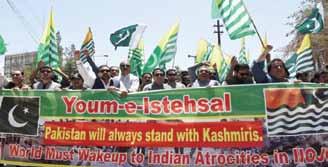
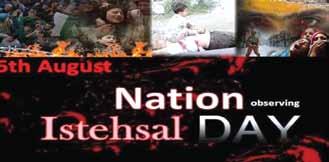
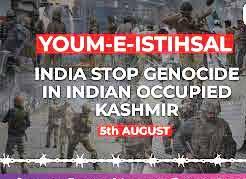 By Danyal Raza
By Danyal Raza
In June this year, Elaine Pearson, Asia Director of the Human Rights Watch, wrote a letter to US President Biden ahead of Indian Prime Minister Narendra Modi’s visit to Washington. In the letter, Elaine Pearson drew US President’s attention to what she described as the “worsening human rights situation” in India amid continued persecution of various ethnic groups and minorities due to their caste, religion, ethnicity, or political beliefs. Ms. Pearson also highlighted various forms of incitement to violence, discrimination and use of politically motivated investigations and harassment of civil society groups under the Foreign Contribution Regulation Act (FCRA), the Unlawful Activities Prevention Act (UAPA), as well as the Citizenship Amendment Law in Jammu and Kashmir. Earlier in May, Meenakshi Ganguly, deputy director of Human Rights Watch Asia Division, published a detailed article on HRW’s website, giving details of how the Bharatiya Janata Party (BJP)-led government in India was using draconian laws to systematically discriminate against minority Muslims and Christians. Meenakshi particularly noted that “after the government revoked its constitutional autonomy in 2019 and split the Muslim-majority Jammu and Kashmir province into two federally
governed territories, Kashmiris continue to face repression”.
Similarly, in May, UN Special Rapporteur on Minority Affairs, Dr. Fernand de Varennes, questioned India’s intent in holding G-20 meetings as chair of the Group in Srinagar despite it being in internationally recognized disputed territory. He called the move an attempt to provide a “veneer of support to a façade of normalcy” in IIOJK at a time when massive human rights violations, illegal and arbitrary arrests, political persecution, restrictions and even suppression of free media and human rights defenders continue to escalate there. The same time, noted American thinker Noam Chomsky also weighed in, saying it was “unconscionable for the G20 to hold any kind of a meeting, let alone a tourism meeting” in Kashmir which, he rightly noted, was “the most highly militarised region on earth, with the population subjected to imprisonment, torture, disappearance, deprived of even the most elementary rights”.
These statements by the Human Rights Watch officials as well as the UN Special Rapporteur on Minority Affairs and sage Noam Chomsky are not new. People with conscience and human rights organisations, advocacy groups, commentators, academicians and journalists have long written and spoken about the gross human rights viola-

tions being carried out in the Indian Illegally Occupied Jammu & Kashmir (IIOJK) for the last seven decades. IIOJK has not just become one of the most militarized zones as pointed out by Noam Chomsky, the region also presents the scene of a vast open prison. Currently, there are nearly 900,000 Indian troops stationed in the occupied territory. The ordinary Kashmiris face arbitrary detentions, custodial killings, rape, pillage and pellet guns on a routine basis. Thousands of them have also been thrown in dungeons on trumped up and baseless charges under the notorious Jammu and Kashmir Public Safety Act as well as terrorism allegations.
Unfortunately for the Kashmiris, their travails and tribulations have grown manifold after the illegal and unilateral acts of August 5, 2019 when the Indian government abrogated the Articles 370 and 35-A of its Constitution, and ended the special autonomous status to the Kashmir territory. It is no secret that these illegal and unilateral actions were taken by the BJP government to suppress Kashmiris’ freedom struggle, deny them their right to selfdetermination and change the demographic structure of the valley. It was a sinister design to deprive nine million Kashmiris of their lands and resources by allowing and actively encouraging settlement of outsiders in the occupied territory in a blatant violation
of relevant UN Security Council resolutions, the 4th Geneva Convention and international law. Since the illegal and unilateral actions of August 5, 2019, the Indian occupation forces have unleashed a reign of terror to silence the Kashmiris. Thousands of Kashmiri activists, political leaders and journalists have been detained without evidence and meaningful judicial review.
Prominent Kashmiri leader Mr. Yasin Malik is being held in inhumane conditions in the notorious Tihar jail despite his deteriorating health, while India’s National Investigation Agency (NIA) has approached the Delhi High Court seeking the death penalty for him. The head cleric of the Jamia Masjid and prominent Kashmiri leader, Mirwaiz Umar Farooq, remains under arbitrary house arrest since August 2019. The founder and President of Jammu and Kashmir Democratic Freedom Party, Mr. Shabbir Ahmad Shah, completed six years of his continued detention in July 2023. The total period of his confinement now exceeds half of his life. He has rightly been called by the ‘Amnesty International’ a “Prisoner of Conscience”. Kashmiri women have been the worst victims of Indian crackdown in the occupied Kashmir. Thousands of Kashmiri women and girls have been abducted and raped by the security. Sent by:
Office of the High Commission for Pakistan
22 Muharrum 24,1445 August 11, 2023 CP e C/ KASHMI r



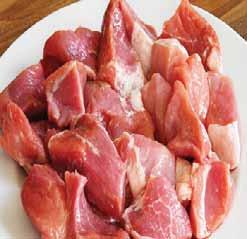
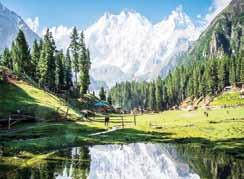
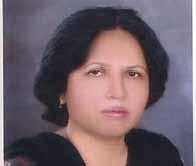
23





24



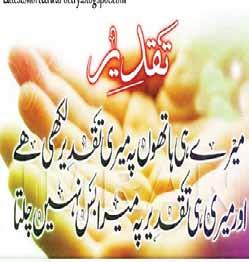
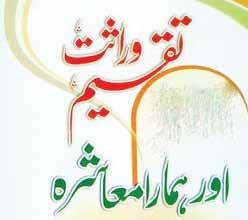

25



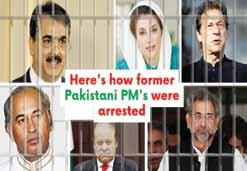
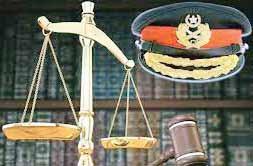
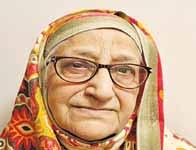
26



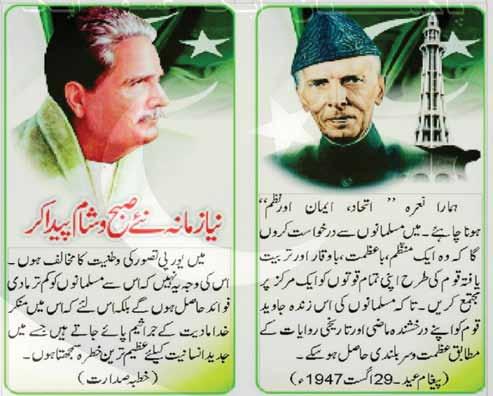
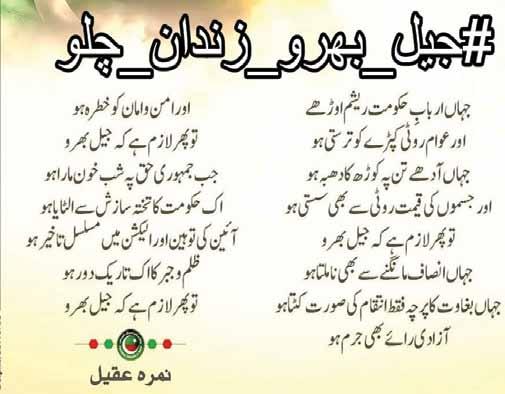
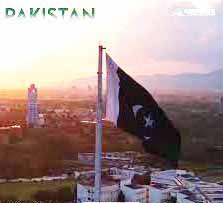
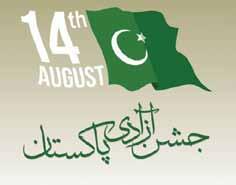

27



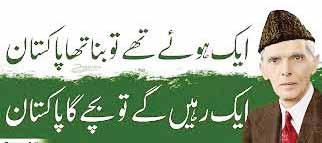
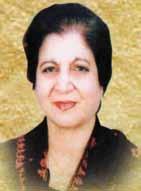
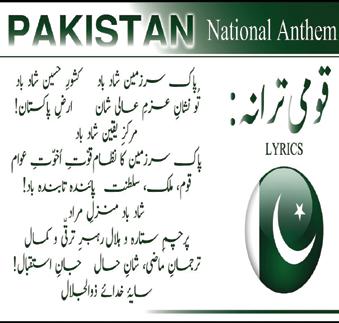

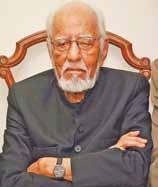
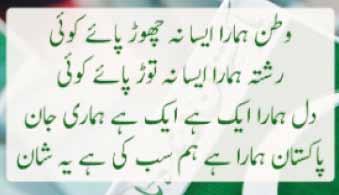
28













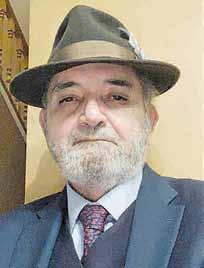
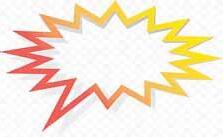
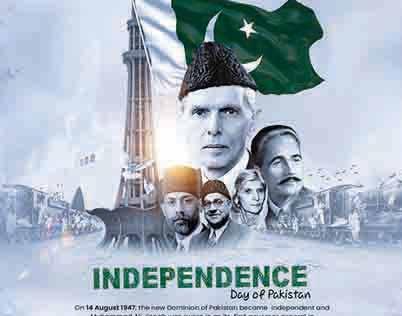
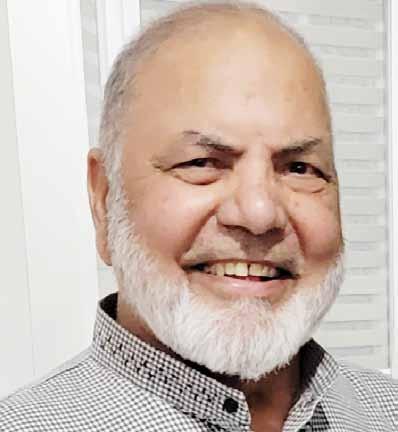

29 Owner: Siraj Khan Special Hrs: 11am to12pm. Open 7 Days a Week Pakistani & Indian Cuisine King of the Grill DEWAN-E-KHASS Please follow us on Facebook Dewan-E-Khass & www.dewanekhass.com Dewan-e-Khass specializes in exotic Pakistani, Indian Grill and Karahi dishes made by our experienced cook from Pakistan. We invite you to come and taste one of our authentic dishes. We are sure once you taste, you will come again. 5750 Fraser Street, Vancouver 604.327.4800 Syed Khan, RCIC I Can Help Immigration Services Cell: +1 778 239 7861 * Need Immigration Help * Appeal Immigration Decision * 28 Years Of Experience Book Free Consultation Now! 76th On this Independence Day, I pray for peace and stability for our nation and the region. Pakistan Zindabad. Mohammed Iqbal Cheema Founder of Pakistani Canadian Cultural Association






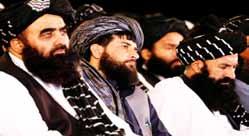
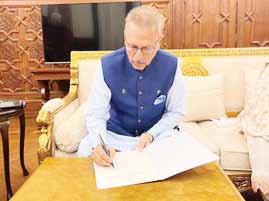
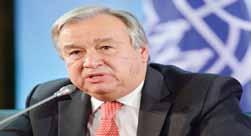
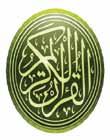

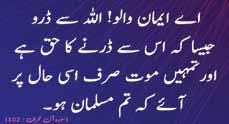
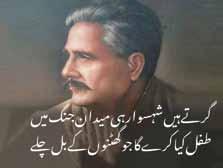
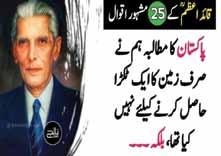

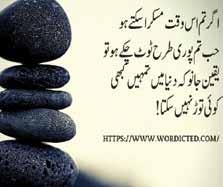
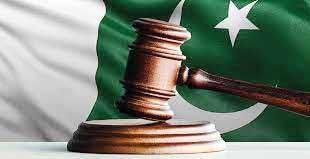

30 PICTURE 604-690-0400 miraclenews@telus.net www.miraclenews.com PICTURE 604-690-0400 miraclenews@telus.net www.miraclenews.com




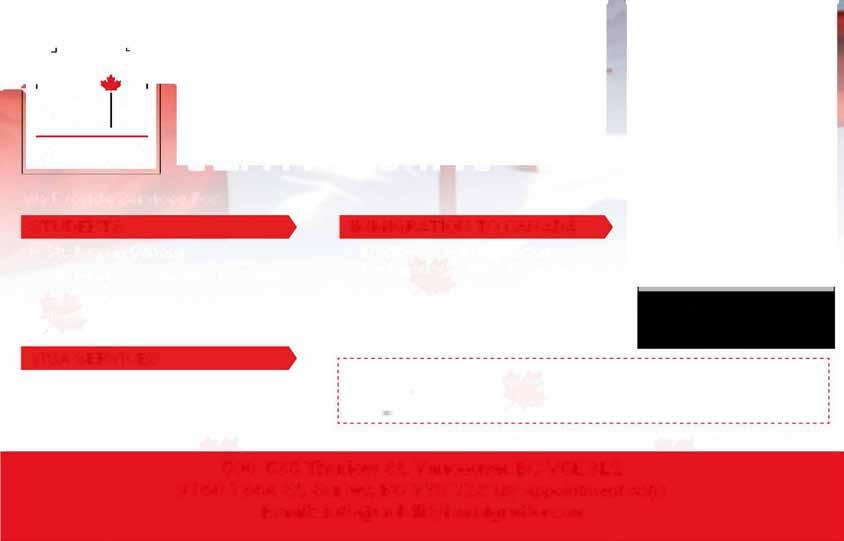


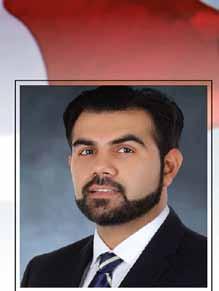

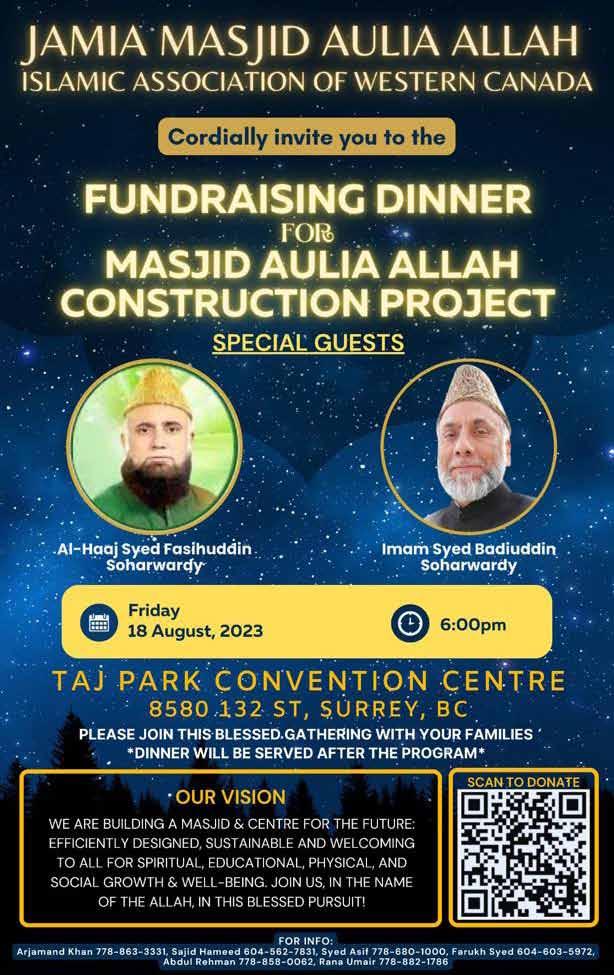
31 NC S NOBILITY CANADA IMMIGRATION SERVICES We Provide Services For STUDENTS ,. Studying in Canada ,. Studying & Immigrating to Canada ,. Study Permit Matter (New, Ext ension, Renew al , Restoration) VISA SERVICES ,. Visit Visa ,. Parent/Grandparent ,. LMIA for Employers IMMIGRATION TO CANADA ,. Employees with Educ ation Background & Work Experience ,. Business Owners ,. Entrepreneurs ,. Investors SHAHRUKH NASEER, RCIC M: 604 724 0690 We are a Licensed and Regulated Immigration Consulting Service Firm Located in British Columbia, Canada. Note: For your protection, Always ensure you deal with a Registered and Regulated Immigration Consultant or Lawyer when getting advice on Canadian Immigration. BEWARE OF FRAUDULENT IMMIGRATION ADVISORS. CHECK REGISTRY OF IMMIGRATION CONSULTANTS AT http://secure.iccrc-crcic.ca/search-new/EN M: 604 724 0690 Email: info@nciscanada.ca WWW NCISCANADA.CA
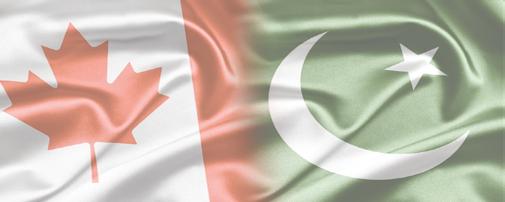










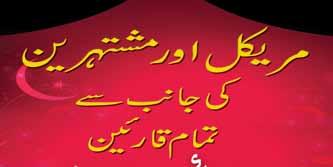
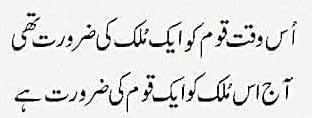



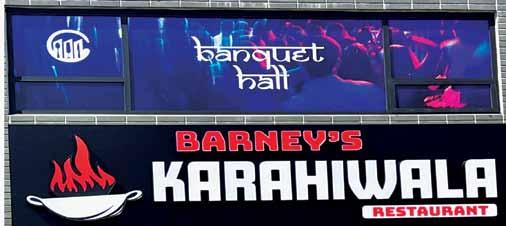


notary Public Immigration Consultant Mohamed Salim Contractor Unit #219-7928, 128 St. (York Business Centre) Surrey. BC V3W 4E8 C: 604.817.3022 O: 604.503.5025 Fax: 604.503.5045 http://www.salimnotary.com/ http://cwics.ca/ www.cwics.team Emails:salim@salimnotary.com &:cwics.team@yahoo.ca NOTARY PUBLIC (604) 596 1861 # 220-13711 72 Ave. Surrey, BC (Opp. Newton Wave Pool) Shoaib.surrey@gmail.com Shoaib Rauf Hotpan Pizza Second Location Open BARNEY’S PIZZA & FRIED CHICKEN Delicious Food For Every Mood Unit 348- 8140-128th Street, Surrey Unit 105-12889 84th Ave, Surrey ARSHAD SOHAL 778-565-4416 604-773-3883 BUSINESS HOURS: 11 am to 11 pm, Sun-Thu 11am to 12 pm, Fri & Sat Tuesday Closed BUSINESS HOURS: 12 pm to 12 am, Sun-Thu 12 pm to 2 am, Fri & Sat New Items: Malai Botti, Full Chargha, Tandori Fish














































 BY: MANSOOR ALAM
BY: MANSOOR ALAM

























 By: Lauren Pelley
By: Lauren Pelley
































































































 By Danyal Raza
By Danyal Raza











































































